Health Articles
Find out more about your health here from our health professionals!
-260x200.png)
How to Help Your Parents Prevent Osteoporosis
.png)
How to Help Your Parents Prevent Osteoporosis
As our parents get older, their bones naturally become weaker, making them more prone to osteoporosis—a condition that causes bones to become fragile and break easily. The good news is that there are simple ways to help them maintain strong bones and reduce the risk of fractures. By making small lifestyle changes and keeping up with regular health checkups, we can ensure our loved ones stay healthy and active. Here are some key ways to prevent osteoporosis.
- Ensure They Get Enough Calcium
Calcium is the building block of strong bones, and getting enough of it every day is essential. If our parents do not get enough calcium, their bodies will start taking it from their bones, making them weaker over time. It is recommended that adults over 50 consume 1,000 to 1,200 mg of calcium daily through calcium-rich foods or supplements. Encourage them to drink milk, eat yogurt, and enjoy cheese, as well as fortified foods like tofu and plant-based milk, are great choices. If they do not eat enough calcium-rich foods, a doctor might recommend a supplement to make up for the difference [1].
- Help Them Get Enough Vitamin D
Vitamin D is just as important as calcium because it helps the body absorb calcium properly. Without it, even a good diet will not be enough to keep bones strong. The best way to get vitamin D is through sunlight—just 10 to 30 minutes of sunlight a few times a week can help. But if our parents do not get much sun exposure, they can eat foods rich in vitamin D, such as salmon, eggs, and fortified dairy products. If necessary, a vitamin D supplement can also be helpful, especially for older adults [2].
- Encourage Regular Exercise
Exercise helps maintain bone density, build muscle, and improve balance, reducing the risk of falls and fractures [3]. Strength training and balance exercises, such as walking, are especially beneficial. Research has shown that tailored exercise plans, including Tai Chi, can significantly help prevent falls and improve balance in older adults [4].
By taking these simple steps, we can help our parents stay strong, active, and independent for years to come. Keeping their bones healthy is one of the best ways to show we care. A little encouragement and support can go a long way in ensuring they live a healthy and happy life!
References
- National Institutes of Health. (n.d.). Calcium - fact sheet for Health professional. https://ods.od.nih.gov/factsheets/Calcium-HealthProfessional/
- Giustina, A., Bouillon, R., Dawson-Hughes, B., Ebeling, P. R., Lazaretti-Castro, M., Lips, P., Marcocci, C., & Bilezikian, J. P. (n.d.). Vitamin D in the older population: A consensus statement. https://pmc.ncbi.nlm.nih.gov/articles/PMC9607753/
- Giangregorio, L. M., & Ponzano, M. (n.d.). Exercise and physical activity in individuals at risk of fracture. https://www.sciencedirect.com/science/article/abs/pii/S1521690X21001305
- Chen, W., Li, M., Li, H., Lin, Y., & Feng, Z. (2023). Tai Chi for fall prevention and balance improvement in older adults: A systematic review and meta-analysis of randomized controlled trials. Front Public Health. https://pmc.ncbi.nlm.nih.gov/articles/PMC10509476/#:~:text=Conclusion,with%20exercise%20time%20and%20frequency.
-260x200.png)
How to Choose a High-Quality Fish Oil Supplement
.png)
Fish oil supplements are a great source of omega-3 fatty acids, which play a crucial role in brain function, joint support, heart health, and inflammation reduction. However, not all fish oil supplements are created equal. With so many options available, choosing a high-quality product is essential to maximize health benefits and avoid contaminants.
This guide will help you identify what to look for when selecting a premium fish oil supplement to ensure purity, potency, and effectiveness.
1. EPA & DHA Content
The two most beneficial omega-3 fatty acids in fish oil are Eicosapentaenoic Acid (EPA) and Docosahexaenoic Acid (DHA). These essential fatty acids support heart health, brain function, and inflammation reduction【1】.
Tip: Some lower-quality fish oil supplements contain more fillers than actual omega-3s. Always check the label for EPA and DHA amounts, not just total fish oil content.
2. Choose Molecularly Distilled Fish Oil
Since fish can contain heavy metals and environmental toxins, it is crucial to choose a supplement that undergoes molecular distillation. This process helps remove mercury, lead, and other harmful contaminants, ensuring a pure and safe product.
Tip: Look for supplements labeled as “molecularly distilled” or “pharmaceutical grade,” as these have been purified to remove potential toxins【2】.
3. Enteric-Coated or Reflux-Free Formulas
A common issue with fish oil supplements is the fishy aftertaste or burps that some people experience. Enteric-coated capsules help prevent this by ensuring the oil is released in the intestines rather than the stomach, leading to reduced reflux【3】.
Tip: If you experience digestive discomfort after taking fish oil, try an enteric-coated supplement or taking it with meals.
By following these guidelines, you can make an informed decision and select a safe, effective, and high-quality fish oil supplement to support your overall health.
References
- Swanson, D., Block, R., & Mousa, S. A. (2022). Omega-3 fatty acids EPA and DHA: Health benefits throughout life. https://www.sciencedirect.com/science/article/pii/S2161831322009620
- Technology Networks. (2024). Fish vs fish oil supplements: Which is better for your health? Retrieved from https://www.technologynetworks.com/applied-sciences/articles/fish-vs-fish-oil-supplements-which-is-better-for-your-health-394642
- Healthline. (n.d.). Omega-3 supplement guide: What to buy and why. Retrieved from https://www.healthline.com/nutrition/omega-3-supplement-guide
-260x200.png)
Care for Your Urinary Health with Simple Daily Habits
.png)
Your urinary health plays a vital role in maintaining overall wellness. Supporting proper urination not only helps flush out toxins but also promotes kidney health and balances bodily functions. If you have trouble urinating or want to maintain a healthy urinary system, there are simple yet effective habits you can adopt. By making mindful choices in your daily routine, you can enhance your comfort, well-being, and quality of life.
1. Stay Hydrated
Water is the essence of life, and drinking enough of it ensures smooth and regular urination. Proper hydration helps flush out harmful toxins, supports kidney function, and prevents urinary tract infections (UTIs)【1】. Aim for at least 8 glasses of water daily or more if you are active or live in a hot climate.
2. Include Bladder-Friendly Foods
Your diet plays a crucial role in urinary health. Incorporate foods rich in antioxidants, such as berries, leafy greens, and citrus fruits, to promote bladder function. Cranberries and blueberries, contain compounds that help prevent bacterial adhesion in the urinary tract, reducing the risk of infections 【2】.
3. Herbal Support for Urinary Health
Certain natural herbs, such as celery seeds and traditional products that help improve urination, act as mild diuretics that can help regulate urination and support kidney function. These natural remedies have been traditionally used to aid fluid balance and detoxification 【3】.
4. Exercise Regularly
Physical activity improves blood circulation, which in turn supports kidney and bladder function. Pelvic floor exercises, such as Kegels, strengthen bladder control and reduce instances of leakage or incontinence, particularly in women and aging individuals 【4】.
5. Limit Irritants
Caffeine, alcohol, spicy foods, and artificial sweeteners can irritate the bladder and lead to frequent or uncomfortable urination. Moderation is key—reducing these triggers can help maintain a calm and well-functioning urinary system 【5】.
By adopting these simple yet caring habits, you can support your urinary health and enhance your overall well-being. When you prioritize the right care, your body flourishes—show love to your urinary system today and embrace a healthier, more comfortable future.
References
- Perrier, E. T., Armstrong, L. E., Bottin, J. H., Clark, W. F., Dolci, A., Guelinckx, I., Iroz, A., Kavouras, S. A., Lang, F., Lieberman, H. R., Melander, O., Morin, C., Seksek, I., Stookey, J. D., Tack, I., Vanhaecke, T., Vecchio, M., & Péronnet, F. (2021). Hydration for health hypothesis: A narrative review of supporting evidence. European Journal of Clinical Nutrition. https://pmc.ncbi.nlm.nih.gov/articles/PMC7987589/
- Jepson, R. G., Williams, G., & Craig, J. C. (2012). "Cranberries for preventing urinary tract infections." Cochrane Database of Systematic Reviews. https://www.cochranelibrary.com/cdsr/doi/10.1002/14651858.CD001321.pub5/full
- Fazal, S. S., & Singla, R. K. (2012). Review on the Pharmacognostical & Pharmacological Characterization of Apium graveolens Linn. Indo Global Journal of Pharmaceutical Sciences, https://www.researchgate.net/publication/231293003_Review_on_the_Pharmacognostical_Pharmacological_Characterization_of_Apium_Graveolens_Linn
- Dumoulin, C., Hunter, K. F., & Moore, K. (2018). "Pelvic floor muscle training versus no treatment for urinary incontinence in women: A Cochrane Review." Cochrane Database of Systematic Reviews. https://www.cochranelibrary.com/cdsr/doi/10.1002/14651858.CD005654.pub4/full
- Cleveland Clinic. (n.d.). Foods that irritate the bladder. Cleveland Clinic. Retrieved March 25, 2025, from https://health.clevelandclinic.org/foods-that-irritate-the-bladder

5 Loving Ways Reclaim Your Energy

Feeling drained? It is okay—you are not alone! Life can be exhausting, but the good news is that small changes can make a big difference. Here are five gentle, science-backed ways to help you feel refreshed, recharged, and ready to take on the day.
1. Prioritize Restful Sleep
Aim for 7–9 hours of quality sleep every night to restore your energy and mood. Regularly sleeping less than 7 hours per night on a regular basis is associated with adverse to obesity, diabetes, heart disease, depression, weakened immunity, impaired performance, and greater risk of accidents. [1] Try creating a cozy bedtime routine: dim the lights, drink milk, and put your phone away to help your mind unwind.
2. Stay Hydrated
Sometimes, fatigue is simply your body asking for more water. A lack of fluids can also cause your heart to work harder to pump oxygen all throughout your body [2]. The expended energy can make you feel tired and less focused. Sip on at least 8 glasses of water a day to keep your mind and body energized. Hydration = self-care.
3. Nourish Your Body with Panax Ginseng Root Extract
Panax ginseng supports the body with natural energy. Studies suggest that it helps improve energy levels and effectively relieve fatigue [3]. Adding a little ginseng to your routine may gently enhance your stamina and overall well-being.
4. Move with Love & Joy
Light jogging, aerobic workouts, cycling, swimming, or dancing to your favorite song with jumps and turns can wake up your system and brighten your mood. Moderate-intensity exercise interventions lasting at least six weeks are, on average, beneficial for fatigue, energy, and vitality [4]. Even small moments of movement can bring more energy and joy to your day.
Nourish your body and soul! When you prioritize rest and self-love, you will feel refreshed and recharged.
References
-
Consensus Conference Panel, Watson, N. F., Badr, M. S., Belenky, G., Bliwise, D. L., Buxton, O. M., Buysse, D., Dinges, D. F., Gangwisch, J., Grandner, M. A., Kushida, C., Malhotra, R. K., Martin, J. L., Patel, S. R., Quan, S. F., & Tasali, E. (2015). Recommended amount of sleep for a healthy adult: A joint consensus statement of the American Academy of Sleep Medicine and Sleep Research Society. Sleep. https://pmc.ncbi.nlm.nih.gov/articles/PMC4434546/#:~:text=):843%E2%80%93844.-,CONSENSUS%20STATEMENT,should%20consult%20their%20healthcare%20provider
-
National Council on Aging. (n.d.). 10 reasons why hydration is important. https://www.ncoa.org/article/10-reasons-why-hydration-is-important/
-
Zhang, G., Lu, B., Wang, E., Wang, W., Li, Z., Jiao, L., Li, H., & Wu, W. (2023). Panax ginseng improves physical recovery and energy utilization on chronic fatigue in rats through the PI3K/AKT/mTOR signaling pathway. Pharmaceutical Biology. https://pmc.ncbi.nlm.nih.gov/articles/PMC9879180/#:~:text=Short%2Dterm%20EEP%20supplementation%20resulted,a%20therapy%20herb%20against%20fatigue.
-
Wender, C. L. A., Manninen, M., & O'Connor, P. J. (2022). The effect of chronic exercise on energy and fatigue states: A systematic review and meta-analysis of randomized trials. https://pmc.ncbi.nlm.nih.gov/articles/PMC9206544/

Fueling Energy: Vitamins and Minerals for the Busy Working Adult

In today’s fast-paced world, working adults often struggle to maintain energy levels amid demanding schedules. Proper nutrition, particularly a balance of key vitamins and minerals, is essential for sustaining vitality and focus throughout the day.
B Complex Vitamins (B1, B2, B3, B5, B6, B7, B9, and B12) are the cornerstone of energy production in the body. Each vitamin plays a unique role in maintaining energy and overall well-being:
- Vitamin B1 (Thiamine) helps convert carbohydrates into energy and supports nerve function, essential for mental alertness.
- Vitamin B2 (Riboflavin) assists in breaking down fats, proteins, and carbohydrates, while also acting as an antioxidant to fight fatigue-inducing oxidative stress.
- Vitamin B3 (Niacin) aids in over 200 enzymatic reactions, particularly those involved in energy production and repairing DNA.
- Vitamin B5 (Pantothenic Acid) is critical for producing coenzyme A, a compound needed to metabolize fats and carbs for energy.
- Vitamin B6 (Pyridoxine) supports neurotransmitter production, promoting brain health and reducing fatigue.
- Vitamin B7 (Biotin) plays a role in metabolizing macronutrients, ensuring a steady energy supply.
- Vitamin B9 (Folate) and B12 (Cobalamin) work together to produce healthy red blood cells, ensuring oxygen is efficiently delivered to tissues for sustained physical and mental energy.
Vitamin C, often celebrated for its immune-boosting properties, also contributes to energy by combating oxidative stress, a major factor in fatigue. It supports the adrenal glands, which play a significant role in managing stress and maintaining energy levels.
Selenium and Zinc are powerful antioxidants that protect cells from damage while aiding the function of enzymes involved in energy metabolism. They are crucial for immune health, indirectly ensuring that energy isn’t drained by frequent illnesses.
Choline, a lesser-known but essential nutrient, plays a dual role in energy and mental focus. It is a key component in the production of acetylcholine, a neurotransmitter critical for memory, learning, and muscle control. By supporting brain and nervous system health, choline helps working adults stay mentally sharp during demanding tasks. Furthermore, it assists in fat metabolism, providing a steady energy supply for prolonged periods.
Lastly, Colostrum, rich in growth factors and antibodies, not only boosts immunity but also promotes gut health. A healthy gut enhances nutrient absorption, directly impacting energy availability.
Incorporating these nutrients through diet or supplementation can help working adults maintain peak performance, physically and mentally. Combined with proper hydration, exercise, and rest, they create a solid foundation for sustained energy in the hustle of daily life.

Masa Untuk Berhenti Merokok
Pertubuhan Kesihatan Dunia (WHO) telah mewartakan bahawa merokok merupakan risiko yang spesifik bagi komplikasi COVID-19 (1,2). Hal ini adalah kerana, jika virus korona menyerang tubuh badan individu yang merokok, peratus untuk individu tersebut pulih lebih rendah berbanding dengan individu yang tidak merokok manakala peratus untuk individu tersebut untuk mengalami kegagalan paru – paru yang serius pula adalah tinggi.
Umum mengetahui, COVID-19 adalah virus yang menyerang sistem pernafasan, jadi, individu yang merokok atau yang mempunyai masalah pernafasan dan/atau sakit – sakit kronik yang lain seperti masalah jantung, buah pinggang, kencing manis dan lain -lain jika terdedah kepada virus ini, mempunyai sebanyak 80.7% risiko kematian berbanding individu yang tidak menghidapi penyakit kronik (3).
Statistik juga menunjukkan bahawa, warga emas yang berusia 60 tahun ke atas mempunyai lebih 62.6% risiko kematian jika terdedah kepada virus ini berbanding individu berusia 60 tahun ke bawah (3). Lebih menakutkan lagi, jika individu yang berusia 60 tahun ke atas, dan mempunyai sejarah penyakit kronik terdedah kepada virus ini, risiko menghadapi kematian adalah sangat tinggi berbanding dengan individu yang yang berusia kurang dari 60 tahun dan tidak mempunyai sejarah penyakit kronik.
Tabiat merokok itu sendiri yang menyebabkan individu berisiko terdedah kepada pelbagai jenis komplikasi kesihatan, akan tetapi sebelum ini mungkin perokok menghadapi kesukaran untuk berhenti merokok disebabkan faktor rakan sekeliling, tekanan kerja dan sebagainya. Akan tetapi oleh kerana dunia diancam dengan wabak COVID-19, individu yang merokok mempunyai lebih sebab untuk berhenti merokok kerana anda mempunya risiko yang lebih tinggi terdedah kematian jika terdedah kepada virus ini.
Antara cara untuk berhenti merokok, yang telah dikumpulkan oleh Pengkalan Data Cochchrane Edisi Istimewa, mengenai cara – cara berhenti merokok adalah dengan menggunakan terapi kombinasi, iaitu penggunaan ubat dan juga sokongan moral (4).
Penggunaan Ubat – Ubatan seperti Nicotine Replacement Therapy (NRT) telah digunakan sebagai salah satu cara untuk berhenti merokok sekian lama. Terapi ini adalah bagi tujuan untuk menggantikan kebergantungan perokok kepada nikotin dan seterusnya menggurangkan motivasi perokok untuk terus merokok. Ia juga membantu mengawal kesan sampingan berhenti rokok/ kurang merokok (4).
Nicotine Replacement Therapy (NRT) ini memberikan nikotin dalam dos yang rendah kepada perokok tanpa apa apa bahan merbahaya yang lain seperti yang terdapat di dalam rokok. Terdapat pelbagai jenis Nicotine Replacement Therapy (NRT) dipasaran, iaitu sama ada dengan menggunakan gula getah nikotin (nicotine gum), ‘nicotine inhaler’, ‘nicotine lozenge’, ‘nicotine patch’ atau ‘nicotine nasal spray’. Kesemua jenis produk ini mempunyai dos, cara, dan kekuatan yang berbeza (5).
Produk bagi terapi nikotin telah direka dengan pelbagai jenis mekanisma untuk penyerapan dan perembesan nikotin di dalam badan. Sebagai contoh bagi gula getah nikotin, inhaler nikotin, lozenge nikotin dan nasal spray nikotin, ia memberi kesan kepada otak dengan lebih cepat berbanding nicotine patch akan tetapi mempunyai proses perembesan yang lebih lambat berbanding merokok (5). Nicotine patch pula merembeskan dos nikotin secara perlahan – lahan dan secara pasif, oleh kerana itu terapi nicotin patch biasanya digunakan bersama produk yang lain.
Kepelbagaian produk bagi membantu perokok berhenti merokok memberikan perokok beberapa pilihan untuk berhenti merokok dengan kaedah yang paling sesuai, berdasarkan kekerapan perokok merokok dan kebergantungan perokok kepada rokok tersebut (4,5). Kesemua produk ini berkesan jika digunakan mengikut kesesuaian terhadap tahap aktiviti merokok seseorang individu. (5).
Selain daripada penggunaan ubat – ubatan, terdapat beberapa langkah yang biasanya disyorkan oleh Kementerian Kesihatan Malaysia (KKM), iaitu yang pertama ialah dengan membaca atau mendapatkan informasi mengenai bahaya rokok dari sumber yang sahih, berkenaan bahaya merokok dan kelebihan berhenti merokok.
Terdapat banyak kelebihan berhenti merokok kerana merokok memberi banyak keburukan kepada diri sendiri dan orang sekeliling terutama ahli keluarga, sebagai contoh kanak – kanak yang selalu terdedah kepada asap rokok atau asap rokok basi akan lebih sering sakit seperti batuk – batuk, selsema serta jangkitan telinga, hidung dan tekak. Merokok juga boleh membuatkan paru – paru lemah dan penyakit seperti asma (6).
Selain daripada aspek kesihatan bagi orang yang tersayang, merokok juga boleh menyebabkan anda mendapat pelbagai jenis penyakit seperti, kanser paru – paru, penyakit paru – paru yang kronik, strok dan ulser di bahagian bawah lapisan kulit perut. Individu yang merokok juga mengikut statistik mati lebih awal, kerana statistik menunjukan satu dari dua orang perokok mati disebabkan penyakit berkaitan merokok (6).
Tabiat berhenti merokok juga dapat menjimatkan wang, labur wang anda berbanding membeli rokok sebagai contoh
Wang untuk membeli rokok = RM5.00/sehari
Sebulan = RM 150.00
Setahun = RM 1800.00
Jika anda melabur untuk 10 tahun, anda sudah mempunyai RM18,000.00 dalam akaun simpanan anda) (6).
Selain, Ia juga dapat melindungi alam sekitar – Puntung rokok dibuang oleh perokok boleh menyebabkan kebakaran (6).
Terdapat pelbagai kaedah untuk berhenti merokok. Faktor yang paling penting adalah keinginan anda untuk menjadikannya satu kenyataan. Mula dengan menetapkan tarikh untuk berhenti merokok dan pastikan tarikh tersebut boleh dicapai. Dalam pada masa yang sama, anda mesti yakin dengan keupayaan diri untuk berhenti merokok. Katakan pada diri anda “saya bukan perokok” Ulang beberapa kali sehingga menjadi semangat untuk berhenti merokok. Sentiasa berfikiran positif dan dapatkan sokongan daripada orang sekeliling.
Teknik berhenti merokok yang paling selalu digunakan dan disyorkan oleh Kementerian Kesihatan Malaysia (KKM) ialah dengan mengamalkan Teknik 12M (6).
1. Melengah – lengahkan
Sebagai contoh jika anda terasa seperti mahu merokok, lengah – lengahkan tabiat tersebut seperti tunggu 5 minit atau katakan kepada diri sendiri sebentar lagi “saya akan merokok”.
2. Menarik Nafas Panjang
Tarik nafas 3 kali secara perlahan-lahan. Ulangi perkara yang sama sehingga hilang rasa untuk merokok.
3. Minum air
Anda juga boleh mencuba untuk minum air masak bagi mengalihkan perhatian anda dari tertumpu kepada ketagihan rokok.
4. Menyibukan diri
Buat sesuatu bagi mengalih fikiran untuk melupakan rokok. Buat perkara yang dapat mengalihkan tumpuan anda seperti bersenam atau bermain permainan video.
5. Menjauhkan diri daripada perokok
Oleh kerana musim PKP ini adalah masa yang terbaik untuk berhenti merokok. Anda boleh menjauhkan diri anda dari rakan – rakan dan ahli keluarga yang merokok, gunakan masa yang ada untuk bersama keluarga tersayang.
6. Mengelakkan diri daripada suasana atau situasi yang mendorong kepada merokok
Seperti keadaan berseorangan tanpa berbuat apa – apa (keadaan bosan) atau keadaan tertekan.
7. Mengunyah sesuatu seperti gula getah atau buah-buahan.
Mengunyah dapat membuatkan rongga mulut sibuk dan mengalihkan perhatian dari ketagihan rokok. Elakkan makanan yang manis kerana ia memberi risiko kepada penyakit – penyakit kronik yang lain pula.
8. Membasuh tangan selalu
Membasuh tangan dengan kerap juga dapat menghilangkan ketagihan kerana kita telah mengalihkan perhatian kita daripada keinginan untuk merokok.
9. Mandi dengan kerap
Mandi dengan kerap menyebabkan badan menjadi segar dan dapat melupakan ketagihan yang di alami, seketika.
10. Meregangkan otot
Senaman yang atau regangan otot apabila ketagihan untuk merokok datang dapat menghindarkan diri dari merokok.
11. Meditasi
Meditasi menyebabkan kita ingat kembali sebab – sebab untuk kita berhenti merokok dan boleh membangkitkan kembali semangat kita untuk berhenti merokok.
12. Memohon doa
Memohon doa agar rasa ketagihan dihilangkan dan dipermudahkan urusan untuk berhenti merokok seperti dihindarkan dari perkara – perkara yang boleh menyebabkan keinginan untuk merokok untuk kembali.
Selain daripada langkah - langkah yang telah disyorkan anda juga boleh mendapatkan maklumat yang lebih lanjut di laman sesawang KKM. Terdapat banyak bahan – bahan rujukan cara untuk berhenti merokok yang boleh di muat turun di laman sesawang yang sahih seperti di Portal MyHealth Kementerian Kesihatan Malaysia (KKM)(5). Selain dari bahan – bahan sokongan yang boleh di muat turun, terdapat juga nombor QuitLine yang boleh dihubungi di nombor 03-88834400 bagi keterangan lanjut mengenai cara berhenti merokok dari kaunselor berhenti merokok atau layari laman web jomquit.moh.gov.my (4,5).
Rujukan
-
The Star. Stub It Out Now, Smoking and Added Health Risk for COVID19. https://www.thestar.com.my/news/nation/2020/04/13/effective-ways-exist-to-quit-smoking-while-under-mco (Diakses 17 April 2020).
-
The Star. Smokers face high infection rate. https://www.thestar.com.my/news/nation/2020/04/13/smokers-face-higher-infection-risk (Diakses 17 April 2020).
-
Ketua Pengarah Kementerian Kesihatan Malaysia (KKM). From the desk of the Director General of Health Malaysia. https://kpkesihatan.com/2020/04/16/kenyataan-akhbar-16-april-2020-situasi-semasa-jangkitan-penyakit-coronavirus-2019-covid-19-di-malaysia/ (Diakses 17 April 2020)
-
Cochrane. COVID-19 Resources. https://www.cochrane.org/news/special-collection-effective-options-quitting-smoking-during-covid-19 (Diakses 17 April 2020)
-
Portal Rasmi My Health Kementerian Kesihatan Malaysia. http://www.myhealth.gov.my/en/nicotine-replacement-therapy-nrt/ (Diakses 17 April 2020)
-
Info Sihat. Bahagian Pendidikan Kesihatan. Kementerian Kesihatan Malaysia (KKM). https://www.infosihat.gov.my/index.php/isu-semasa/42-tips-berhenti-merokok (Diakses 17 April 2020)

Understanding How Fasting Affects your Digestive System
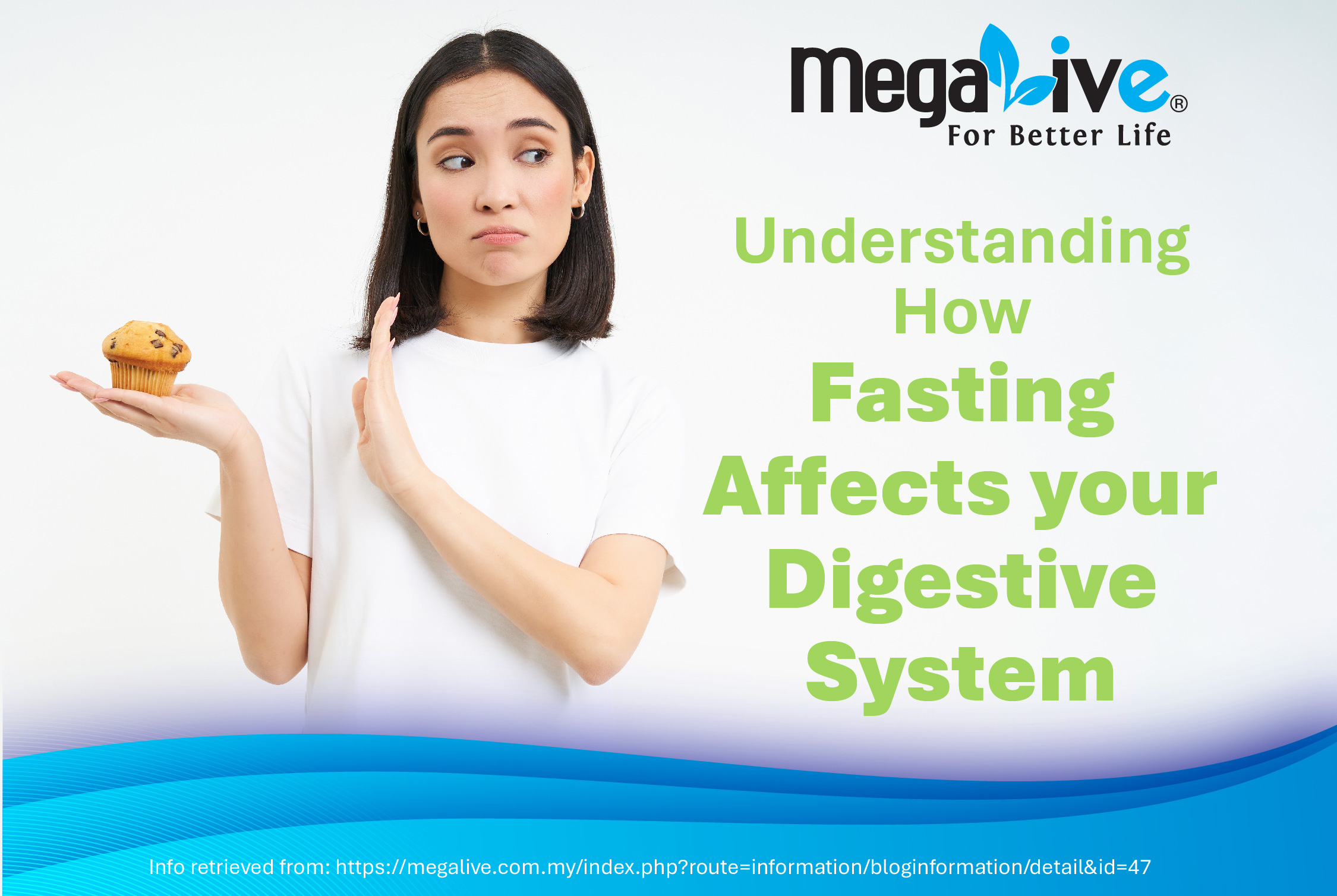
Fasting, a practice embraced across various cultures and religions, offers a myriad of benefits for physical and mental well-being. While commonly associated with religious observances like Ramadan or Yom Kippur, fasting has also gained traction in health and wellness circles for its potential to detoxify the body, enhance focus, and regenerate immune cells.
Benefits of Fasting
During fasting, the body enters a state called glucogenesis, where it uses stored energy from fats and glucose, promoting weight management and detoxification. This process not only helps to eliminate toxins but also boosts the production of endorphins, enhancing mood and mental clarity. Additionally, fasting allows the digestive system to rest, potentially improving overall gut health.
Fasting and Digestive Challenges
Despite its benefits, fasting can sometimes lead to digestive discomforts like heartburn and indigestion. Reduced food intake lowers stomach acid, which helps digest food and fight bacteria. However, stimuli such as the smell of food or thinking about meals can trigger acid production, potentially causing heartburn. Overeating during iftar or breaking a fast too quickly may also overwhelm the digestive system, leading to bloating or indigestion.
Practical Tips to Prevent Discomfort
- Break Your Fast Gradually: Begin with light, easily digestible foods such as dates, soups, or yogurt, followed by balanced meals.
- Stay Hydrated: Drinking plenty of water before and after fasting periods helps maintain hydration and aids digestion.
- Mindful Eating: Avoid overeating, especially during meals after fasting. Practice portion control to ease the digestive workload.
- Support Digestive Health: Incorporate supplements like MegaLive GastoEz to address occasional heartburn or indigestion.
Fasting is a holistic practice that nurtures the body, mind, and spirit. By adopting mindful eating habits and addressing potential challenges, you can enjoy its benefits while minimizing discomfort, making the experience both fulfilling and healthful.
References
Medical News Today (n.d). What Happens If You Don’t Eat For A Day? Timeline And Effects. [online] Available at: https://www.medicalnewstoday.com/articles/322065#can-fasting-promote-weight-loss [Accessed 29 April 2020].
Medical News Today (n.d). Fasting: Health Benefits And Risks. [online] Available at: https://www.medicalnewstoday.com/articles/295914 [Accessed 29 April 2020].

Organic Food: Is It Truly Healthier?
Globally, there is a growing demand for organic food (1). However, in Malaysia, the organic food industry remains relatively small, with over 60% of organic food products being imported (2). This trend is changing as consumers become increasingly concerned about nutrition, health, and food quality. Key concerns are arising due to food crises related to pesticide residues on fresh produce, chemical contamination in dairy and seafood products, and the unregulated use of additives in processed foods (2).
Moreover, the rise in obesity, type 2 diabetes, and coronary heart disease has made people more aware of the impact of their dietary habits on their health. Some individuals also opt for organic produce due to environmental concerns and the threats posed by the use of pesticides in conventional farming (2).
Many consumers perceive organic produce as being healthier because it avoids synthetic fertilizers and pesticides. However, does this perception hold true? Is safe food equivalent to healthy food?

Before delving further, let's clarify what organic produce means:
"Organic farming employs natural methods to manage crops. Natural fertilizers like manure and compost are used to nourish the soil and plants, as opposed to synthetic fertilizers. Some go to great lengths to ensure that the manure comes from organically raised animals and the compost is derived from waste materials at organic locations. Instead of using chemicals and insecticides, organic farms use natural ingredients like enzymes or plant-based pesticides. They also practice companion planting, where certain plants known to repel insects, such as marigolds, are grown near crops (3,4)."
In Malaysia, the Department of Agriculture (DOA) is responsible for regulating the National Standard of the Organic Food Industry and conducts routine inspections and certification of organic produce. The Malaysia Agriculture Research and Development Institute (MARDI) actively engages in educating farmers on organic farming practices (2).
Hence, organic produce isn't necessarily healthier but does have lower levels of pesticide residue due to environmentally friendly farming practices compared to conventional produce (4). Studies indicate that organic produce contains one-third of the pesticide residue found in conventional produce on the market (4). However, both types of produce have safe levels of pesticide residue, making them suitable for consumption.
Determining whether a specific food is healthy cannot solely depend on whether it is grown organically or conventionally. Several factors come into play. It's crucial to remember that there is no universally "healthy" food; what's healthy for one person may not be for another. Even the same food can be considered healthy or unhealthy based on portion consumption. For instance, chicken is healthy, but consuming two whole chickens daily is not. Healthy food is a concept encompassing moderation, nutritional value, dietary variety, balance, and individual health or medical conditions.
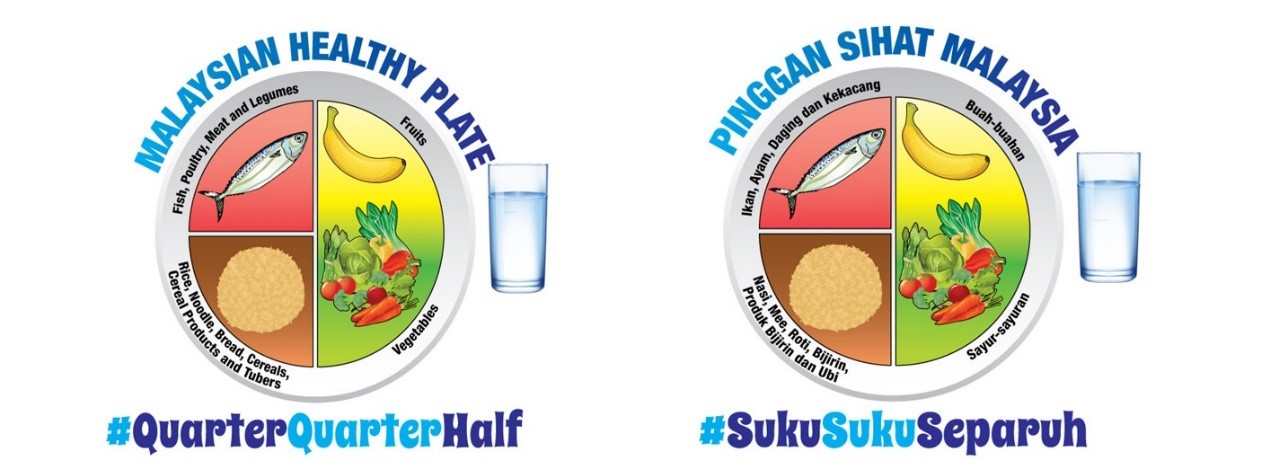
To assess the actual impact of organic food consumption on health, a systematic review was conducted on the nutritional-related health effects of organic foods, with a focus on whether organic production methods resulted in higher nutrient concentrations and different health responses, such as cancer markers or the bioavailability of compounds used in cancer prevention (1).
The results of this review, which compared 12 studies, primarily reported antioxidant activity. While antioxidant activity is a valuable biomarker potentially relevant to human health, it isn't a direct health outcome. In fact, the link between the concentration of antioxidants and human health is complex, requiring cautious interpretation (1).
In summary, it is safe to assert that organic food is safer to consume compared to conventional produce in terms of pesticide residues. However, when considering the overall healthiness of food, it is important to emphasize moderation, variety, and balance in one's diet. Organic or not, these principles remain central to a healthy dietary lifestyle.
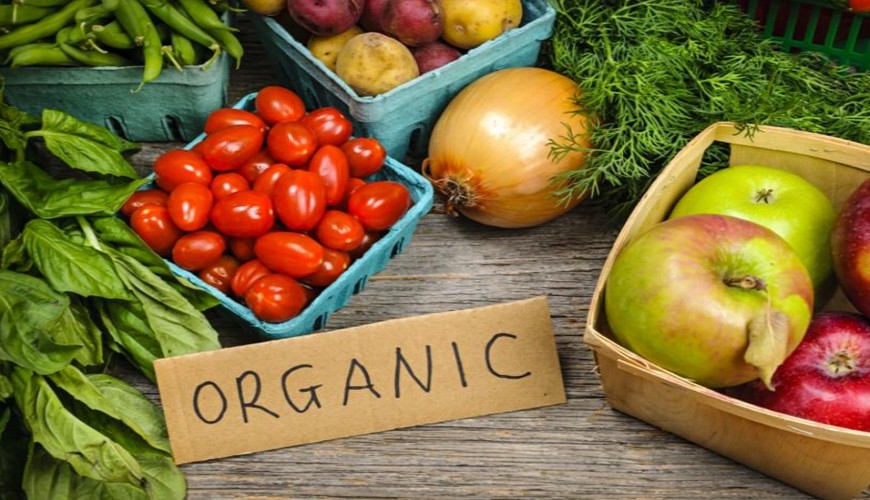
References
- Dahgour D., Lock K., Hayter A., Aikenhead A., Allen E., Uauy R. (2010). Nutriton – Related Effects of Organic Foods: A systematic Review. American Society for Nutritions Journal. 2020; 92: 203-10
- Somasundram C., Razali Z., Santhirasegaran V., (2016). A Review on Organic Food Production in Malaysia. Horticulturae (MDPI)
- Datuk Dr, Nor Ashikin Mokhtar. The Star. Understanding Organic labels (2014). https://www.thestar.com.my/lifestyle/viewpoints/womens-world/2014/01/12/understanding-organic-labels (Accessed May 4, 2020)
- Is Organic Food Better For You (n.d). https://www.webmd.com/food-recipes/features/organic-food-better#1 (Accessed May 4, 2020).
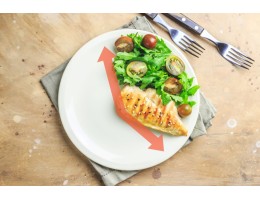
Tips to eat healthily while fasting in Ramadhan
Ramadhan is the month where Muslims around the world fast from dawn to dusk. Healthy Muslims need to fast, begin with the pre-dawn meal called ‘suhoor’ and break the fast at dusk which call ‘iftar’. Apart from Ramadhan, there are many other occasions where other religions around the world are also practicing fasting. The difference is only the method and the do’s and don’ts during the ritual. Since according to World Health Organization (WHO) there is evidence suggests that fasting have positive effects on health (1), there are also people who fast in order to lose weight (E.g: Intermittent fasting) and for health purposes.
What happened to your body during fasting?
During fasting, when no food and drink is consumed, body uses its stored carbohydrate (in the liver and muscles) provide energy. Once all the calories from foods consumed have been used up, body will use the excess food that we consume in the form triglycerides (fat) to provide us with energy. This is when people usually loss weight.
Our body cannot store water so during fasting the kidneys conserve as much water as possible by reducing the amount lost in urine. However, body cannot avoid losing some water during certain process in the body such as through your skin (perspiration) and when you breathe (2).
Due to all these changes during fasting, we must to make sure that we practice healthy eating during fasting in order to make sure body that our body is able to cope with all this changing process by not losing nutrient needed but instead loss the unwanted fats, sugars, and cholesterol in the body.
4 Tips to eat healthily while fasting in Ramadhan
1.Do not skip ‘suhoor’
This is especially for special groups such as older people, adolescents, pregnant women, nursing mothers and as well as children who choose to fast. The meal for ‘suhoor’ must include vegetables, high fiber food can slow down the empty rates on the stomach and make individuals feel satiety. A serving of carbohydrates such as rice or bread (whole grain product is better) and protein – rich food such as egg or/ and dairy product are also a must.
Since ‘suhoor’ is very early in the morning and mostly people do not bother to cook for long time, thus people opt to fry their food, it is healthier to fry using air fryer where less fat (oil) is used, but apart from frying it is actually recommended to use other cooking method such as steaming or just stir fry since it use less oil.
During ‘suhoor’ also people tend to cook processed food such as sausages, nuggets etc, all these processed food actually contain high salt, it is better to avoid food that is high in salt, cause it will also makes one very thirsty later, thus food such as pickle, processed foods, salted meat and fish products, salty cheese and various types of ready-to-eat foods are best to avoid (1,2).
2. Keep hydrated
Make sure to drink 8 glass of water per day, still. Here is tip on how to drink 8 glass of water in Ramadhan according to Ministry of Health Malaysia (3).

Other than this, you can also increase water intake by consuming hydrating food. Try to add hydrating food such as watermelon, cucumber, tomato and green salad. You must also avoid caffeinated beverages such as coffee, tea and cola, because caffeinated beverages are diuretic (which means it makes one urinate more often when consumed) this will lead to dehydration as well. Soupy food also rich in water thus it is suggested to consume this kind of food when break the fast. During the day of the fasting period, when the temperature is high (E.g: noon) it is important to remain in a cool and shaded place and to avoid the sun (1,2).
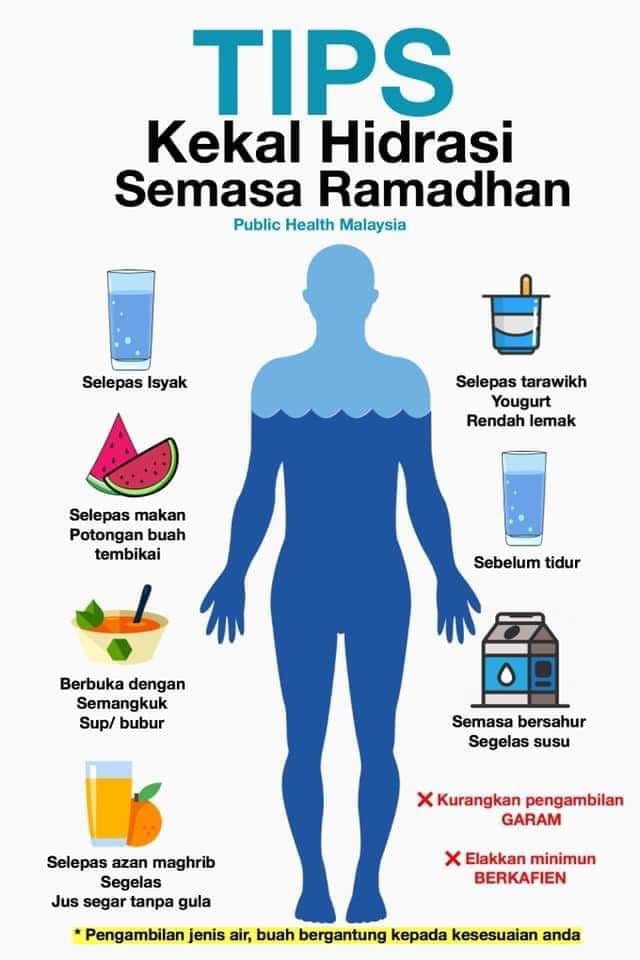
3. Break the fast gently
When it is time for break the fast, avoid filling up on greasy foods in the form of cakes and deep-fried savory snacks. It is best to go for dates, fruit or nuts to satisfy your hunger. If you often get caught in the rush hour traffic, consider keeping these preferred choices handy in small containers in your handbag or backpack so you do not have to delay your breaking of fast. This will prevent you from getting overly famished at dinner after the prayers, where you risk overeating and causing indigestion (4).
In Islam also, it is a sunnah habit to consume dates when break the fast;
You may also try to consume date and water to break fast and perform maghrib prayer first, then only begin to eat heavy meals, just as the suggestion from Ministry of Health Malaysia.

4. Moderation and variation
The changes to eating habits and lack of fluids during the day may cause constipation for some people. When you can eat and drink, consume plenty of high fiber foods, such as wholegrains, high fiber cereals, bran, fruit and vegetables, beans, lentils, dried fruit and nuts alongside plenty of fluids will help to ease constipation. Do some light physical activity, such as going for a walk after iftar or right before iftar in the evening will also helps with the constipation and indigestion after iftar.
While Ramadhan is time for people to reunite however during the pandemic of COVID19 it is best for people to not make a celebratory feast together. Iftar meals are often a time for celebration (of the day that you have successfully refrain yourself from eating and drinking) but it is still important not to go overboard when eating during Ramadan. Consuming a lot of deep fried, creamy and sweet foods may cause you to gain weight during Ramadan. Ramadan can be a good time to make changes to improve the balance of your diet that you can sustain in the longer term.
Be moderate in preparing ‘iftar’ and ‘suhoor’ menu. Moderation is the key when you go for grocery shopping as well. You can also practice ‘suku – suku separuh’ during ‘suhoor’ and ‘iftar’.

References
1. World Health Organization (WHO) (2020). Dietary Recommendation for the month of Ramadhan. http://www.emro.who.int/nutrition/nutrition-infocus/dietary-recommendations-for-the-month-of-ramadan.html (Accessed May 8, 2020)
2. British Nutrition Foundation (n.d). A healthy Ramadhan. https://www.nutrition.org.uk/healthyliving/seasons/ramadan.html?__cf_chl_jschl_tk__=75c06dff67f5c87204c0dc2cdd8343844c35c78f-1588901425-0-ATZP71yUnOxiGwGcgpUyrLmtTJ-b_aVnqESs0dUhbMEwJx2CMSYck_sO8RxelwmxumL_jHJv2_mGOGvWSHlXaS_XwkdLczerYyCCTS6sjsdD9iRqqIt7I_CiM5BqvX8mnxfvPxXSNRGVErKJz0u9Z-jdTIY4PV0TvLNPbbPWNeZ0FpQCI0OKjcEl-s-fgzbwiWzuJ6jfRtpYYwc37XdkKv5wE3APFD-rODoj4wdkXGHByASPcLGaYNiPWa_9x1AS7n4g0TY5EsWp3OHEeCmtpv3c4VZ3rn5QKzrtx788z_k0_J4rluYZx1CbGz3DcFaQIdFXGyIZAPcr2CYlI1MMnmlD-genvQspQrMxHnrOn6Ix2p7QlmZSgD0RKHKOIeG80w (Accessed May 8, 2020)
3. Kementerian Kesihatan Malaysia (KKM). Jabatan Kesihatan Negeri Pulau Pinang. https://web.facebook.com/jknpenang/posts/3729048157168283?_rdc=1&_rdr (Accessed May 8, 2020).
4. Indra Balaratnam (2018). New Straits Times (NST). Eat Well Healthy Eating for Ramadhan. https://www.nst.com.my/lifestyle/heal/2018/05/367119/eat-well-healthy-eating-tips-ramadan (Accessed May 8, 2020).
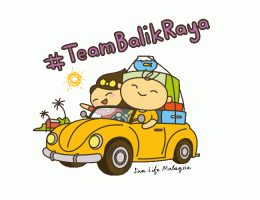
5 Tips for Hari Raya Aidilfitri to be celebrated with the new norms!
It has been almost two months that Malaysians persevered under the Movement Control Order (MCO), and then the Conditional Movement Control Order (CMCO).The order by the government, enforced since March 18, was to break the chain of the COVID-19 infection in the country. As for now, the curve is getting flatter, with Malaysia ranked fourth out of 105 countries in terms of people’s satisfaction with the government’s efforts in addressing the pandemic (1,2).
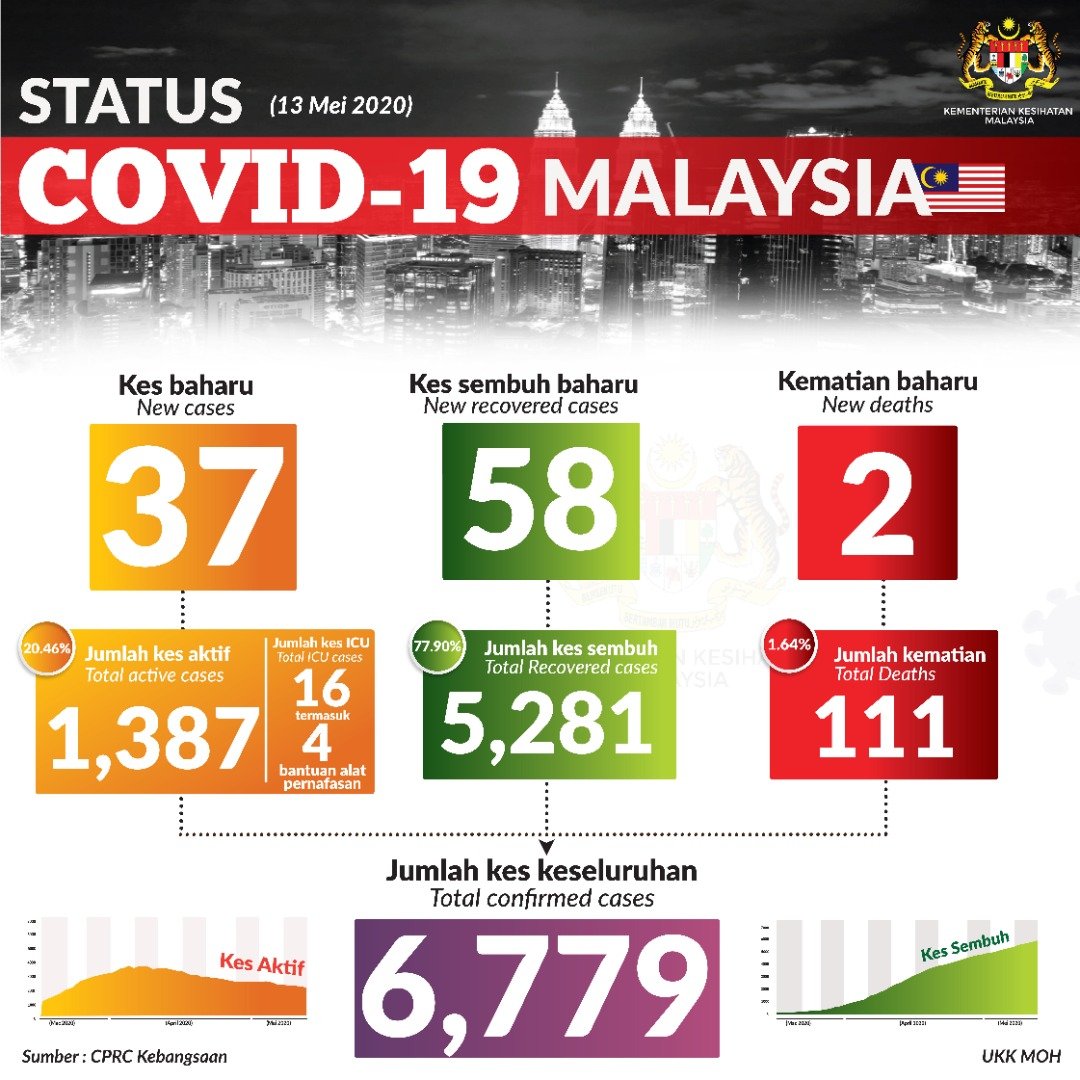
With this being said, the number of cases daily is also decreasing and the number of people whom have cured from COVID19 also is increasing, with many new cluster has been surfaced, thus on May 11, 2020, the Prime Minister of Malaysia, Tan Sri Muhyidin Yassin, announced that the Conditional Movement Control Order (CMCO) is extended until 9 June 2020 (1,2).
This brings sadness to many as the Hari Raya Aidilfitri is approaching, and the interstate travel is banned thus for the first time in history, the norms of the Hari Raya celebration are going to change 360 degrees, with the absence of the ‘balik kampung’ and the open houses culture (1,2).
Here are some of the tips you may practice during Hari Raya Aidilfitri new norms since World Health Organization (WHO) expert in Medical Emergency, Dr. Mike Ryan stated that, once the MCO is getting less strict people will still maintain the social distance but the risk of infection will increase:
1.’Balik Kampung’ (1,2,3)
If your ‘kampung’ is in the same state and everyone is healthy. If you must travel interstate, do not ‘balik kampung’ stay where you are. Make sure the place you visit has not more than twenty people with everyone is healthy in the family. The Director General of Health also said that the “20 visitors per home” rule for Aidilfitri is not an absolute number and must take into consideration the size of one’s domicile to ensure social distancing above all. There is also 3Cs rule that is suggested by Ministry of Health Malaysia (MOH), which is confined spaces, crowded spaces and closed conversation that need to be avoided during Hari Raya period. Furthermore, if the house you are going to visit has elderly who is sick or baby, do not visit that house. Also before you actually visit a particular house, call to inform or seek permission first, whether they are ready to accept people for Hari Raya or not, because we might not know someone might just have the symptoms on the hari raya itself, thus want to avoid people during hari raya.
2. Practice 3C (4)
While you are visiting one another during hari raya make sure to adopt the new norm such as according to Centre of Disease Control (CDC) three steps you can take to keep yourself and your community healthy and safe amid the coronavirus outbreak are Clean, Cover and Contain. Frequently clean your hand by washing it with soap and warm water for at least 20 seconds. During this hari raya period, avoid the handshake culture, instead to show respect just put your hand on the chest. Avoid touching other people and surfaces After every visit that you make, make sure to clean hands before you enter the premise and after you enter the premise. If soap and water are not readily available, use a hand sanitizer that contains at least 60% alcohol. Cover all surfaces of your hands and rub them together until they feel dry. Avoid touching your eyes, nose and mouth with unwashed hands. The CDC also recommends cleaning and disinfect regularly touched surfaces daily. These surfaces include but are not limited to: doorknobs, light switches, countertops, handles, desks, phones, keyboards, toilets, faucets, and sinks.
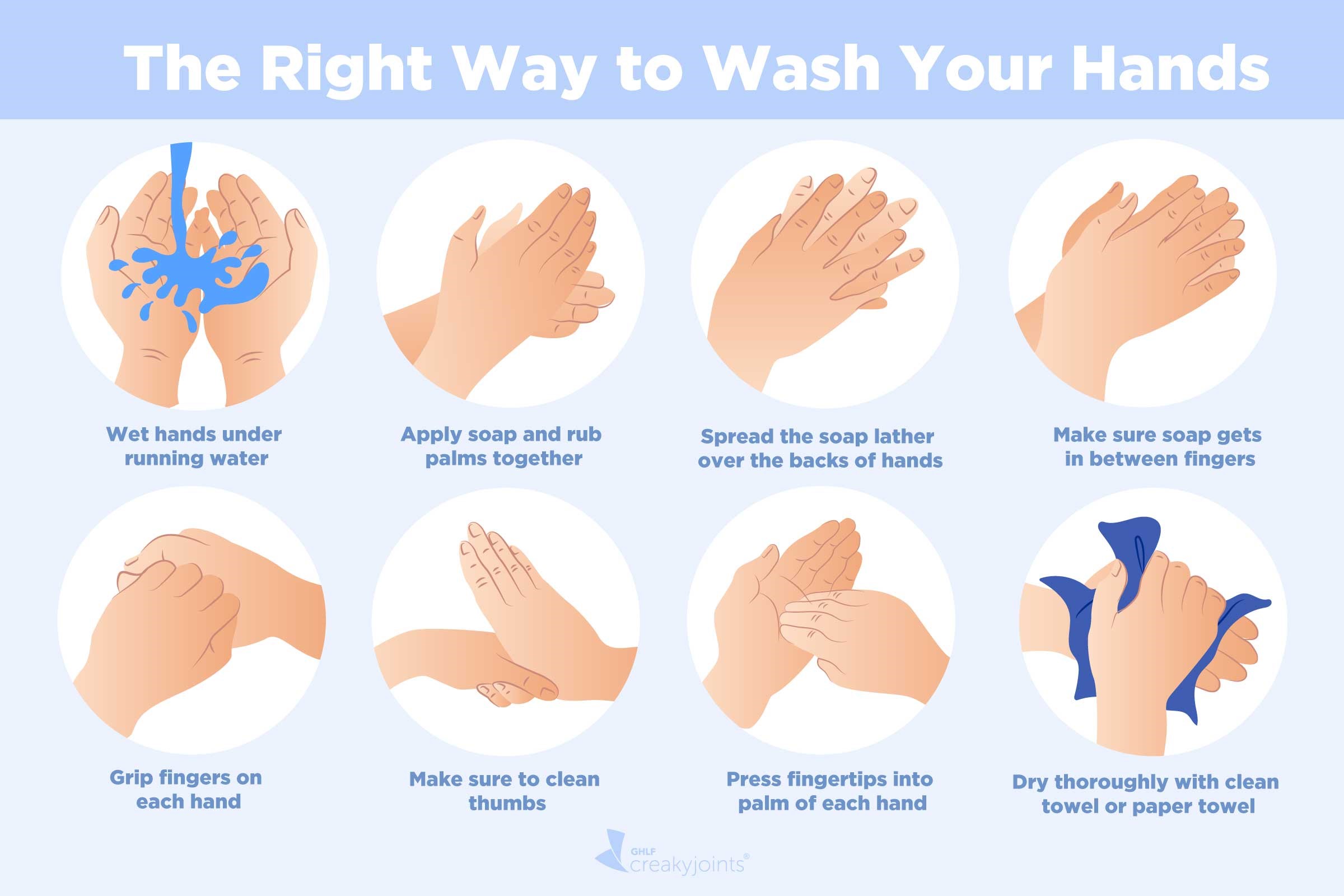
Cover your mouth and nose, during your visit. Make sure to cover your mouth and nose either by wearing mask or cover your mouth and nose with tissue when you sneeze or use the inside of your elbow. If you are using tissue, throw the tissue in the covered dustbin and immediately wash your hands after with soap and water for at least 20 seconds. If soap and water are not readily available, use a hand sanitizer as instructed above.
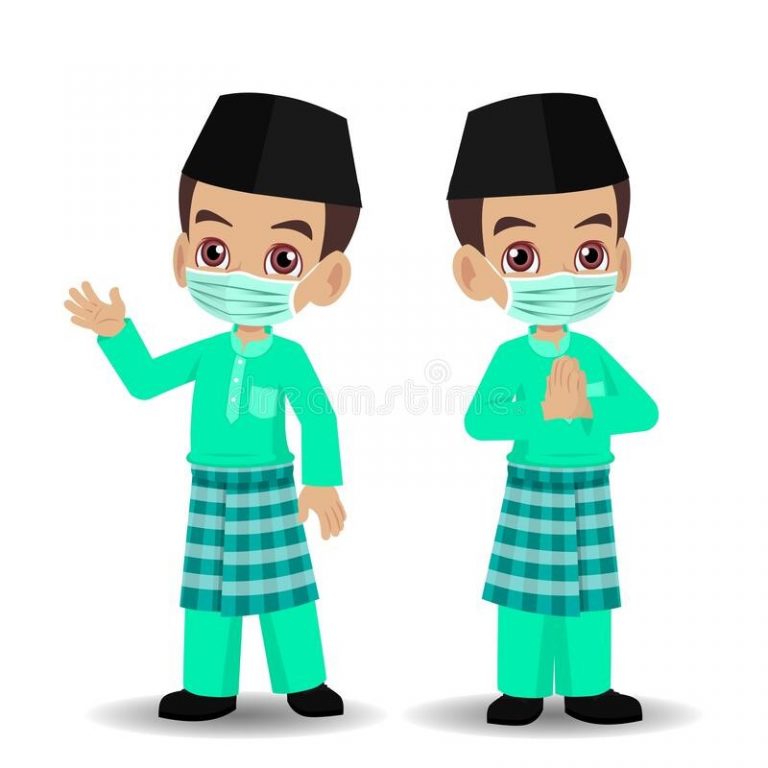
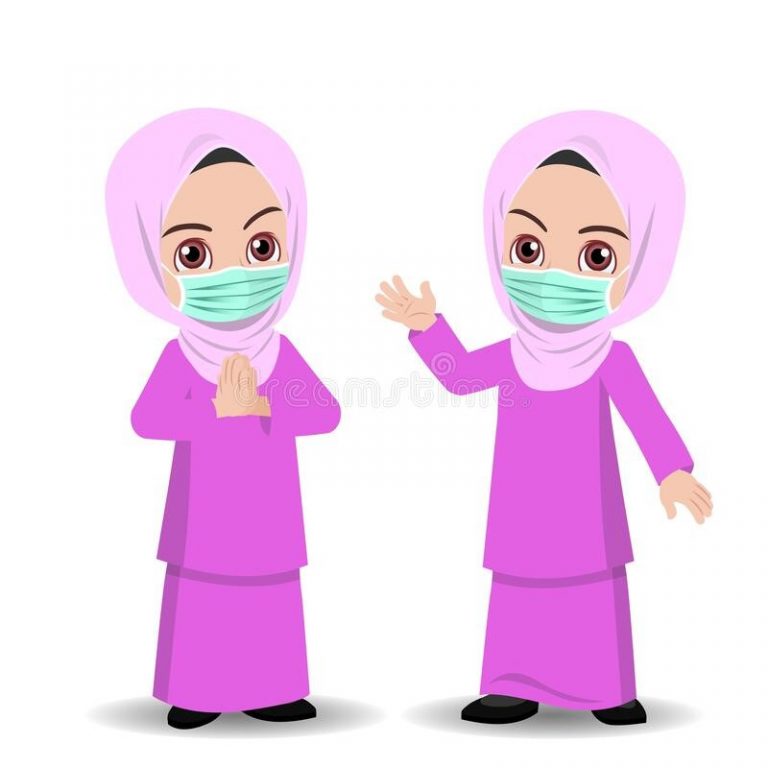
Contain the spread of germs and the virus by staying home if you feel sick except to get medical care. Self-isolate and avoid close contact with people who are sick. Put distance between yourself and other people for at least 1 meter, especially people who are at a higher risk of getting sick. These include elderly and anyone who has serious underlying medical conditions.
3.The usage of new technology among elderly
Until early last year many of the elderly have problem with regards to the usage of the internet, usage of the gadget and all that. However, since Movement Control Order, many elderly have learnt and know how to even make video call and buy things online. With Hari Raya that is going to be celebrated during CMCO period, it is the new norm for us to adopt this technology and be far from eyes but not in the heart. Call your loved ones during hari raya, if they do not know, get someone in the area to teach them on how to accept the call and call them during Hari Raya.
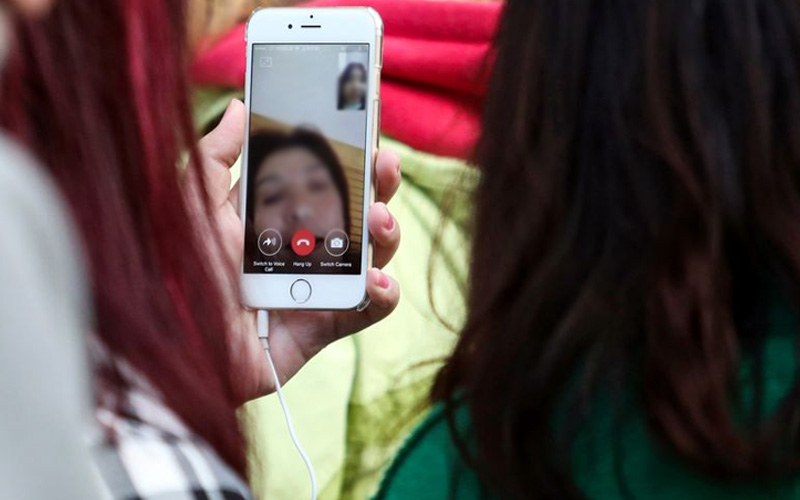
4. Scan for ‘duit raya’

As for duit raya, it has been a tradition for not only Malay to be giving and accepting ‘duit raya’ during hari raya, however it is not wise to be giving cash anymore. With the use of e – wallet and ‘duitnow’ we now able to transfer ‘duit raya’ contactless and easier. Set aside an amount of your money for ‘duit raya’ and you are set to give duit raya for your loved ones either through transfer or just scan it!
5.Warn
It is also a good practice, to warn or advise one another during hari ray since sometimes people might forget the do’s and don’t’s because we are so happy meeting everyone during hari raya. Hence, a reminder from one another is very important to make sure everyone is safe.
Lastly, Selamat Hari Raya Aidilfitri from us Megalive Family to you and your family, may this Hari Raya brings you lot of happiness and makes you closer in the heart with your loved ones.
References

7 Tips Penyediaan Menu Sihat & Makan Secara Sihat di Hari Raya!
Setiap tahun Hari Raya Aidilfitri ialah pada 1 Syawal tahun Hijrah. Perayaan tersebut juga dikenali sebagai Hari Raya Puasa atau Hari Raya Fitrah atau Hari lebaran. Hari Raya Aidilfitri merupakan sambutan yang diraikan oleh umat Islam di seluruh dunia setelah berjaya menjalani ibadah puasa sepanjang bulan Ramadhan.
Antara amalam – amalan tradisi yang dilakukan semasa Hari Raya ialah amalan ziarah – menziarahi sanak – saudara dan jiran tetangga. Amalan mengeratkan silaturahim ini sangat digalakkan dalam Islam bagi memohon kemaafan di antara satu sama lain. Akan tetapi oleh kerana Hari Raya Aidilfitri tahun ini ialah pada musim Perintah Kawalan Pergerakan Bersyarat maka, ikutlah saranan untuk beraya dengan selamat dalam kita menjauhi wabak COVID19. Walaupun sesetengah daripada kita ada yang telah mendapat vaksin tetapi masih ramai yang belum, dan sudah divaksin bukan bermakna anda tidak boleh dijangkiti wabak COVID19.

Semasa bulan Ramadhan sebelum ini, ramai di antara kita mengambil kesempatan menurunkan berat badan dan makan secara sihat. Walau bagaimanapun, apabila tiba musim perayaan, kebanyakan kita mengalami penambahan berat badan. Berat badan yang berjaya diturunkan sepanjang 30 hari menjalani ibadah puasa mungkin meningkat semula hanya selepas 15 hari menyambut Hari Raya. Hal ini adalah kerana, hari raya adalah masa untuk menikmati juadah hari raya yang hanya setahun sekali dimasak dan dimakan bersama – sama oleh kerana itu ramai yang mengambil kesempatan ini untuk makan juadah raya tanpa mengira jumlah kalori dan panduan pemakanan sihat (1).

Sebenarnya pemakanan sihat sangat mudah diikut walaupun ketika hari raya. Makan dengan sihat bukan bermaksud kita tidak dapat menikmati juadah hari raya akan tetapi makan dengan kadar yang betul dan dengan cara penyediaan makanan yang lebih sihat. Kita dapat bahagikan amalam pemakanan sihat ketika hari raya kepada dua kategori iaitu semasa penyediaan makanan dan semasa menikmati hidangan hari raya.
7 Tips Sediakan Hidangan Sihat di Hari Raya (1,2,3)
1. Kurangkan gula, minyak dan lemak dalam penyediaan biskut dan kek.
Gunakan ½ atau ¾ daripada kuantiti gula yang biasa digunakan semasa menyediakan biskut dan kek. Jika perlu, gunakan gula gantian bagi mendapatkan biskut atau kek yang sempurna tekstur dan rasanya.

2. Gunakan daging yang telah dibuang lemak atau ayam yang telah dibuang kulit.

3. Kurangkan mensajikan makanan yang bersantan, bergoreng dan berminyak.
4. Gantikan penggunaan santan dengan susu rendah lemak dalam penyediaan rendang dan kuah lontong.

5. Potong ayam atau daging dalam size yang kecil.
6. Gunakan ramuan tinggi serat untuk membuat biskut dan kuih raya seperti tepung bijirin penuh, oat dan buah prun.
7 Tips Makan Secara Sihat Di Hari Raya (1,2,3)
1. Makan dalam saiz hidangan atau kuantiti yang kecil.
Pemilihan pinggan yang lebih kecil membantu dalam mengurangkan pengambilan makanan lebih – lebih lagi jika anda makan secara buffet.
2. Pilih makanan yang rendah kalori seperti buah-buahan serta makanan yang kurang minyak, lemak dan santan.
3. Pilih makanan tinggi serat untuk mengelakkan sembelit.
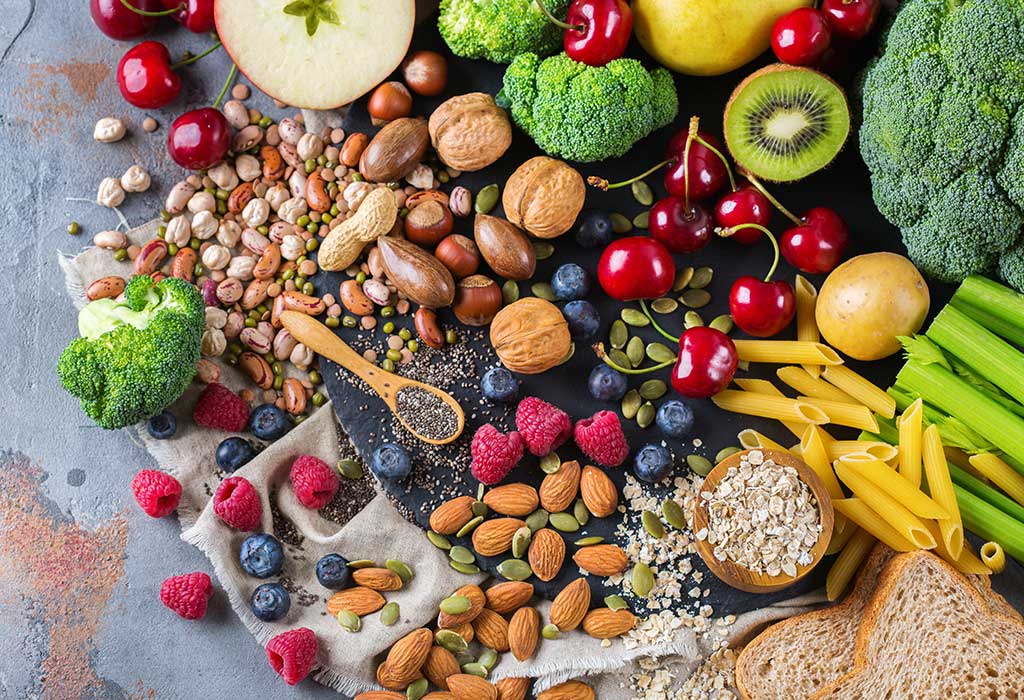
4. Hadkan pengambilan makanan yang manis dan berlemak seperti biskut raya dan dodol.
Anda juga boleh mengehadkan pengambilan kuih-muih atau kek semasa hari raya kepada hanya 5 biji kuih raya sehari dan kurangkan pengambilan makanan manis yang lain.

5. Pilih buah- buahan segar sebagai pencuci mulut.
6. Hadkan pengambilan makanan yang tinggi kandungan garam seperti kerepek
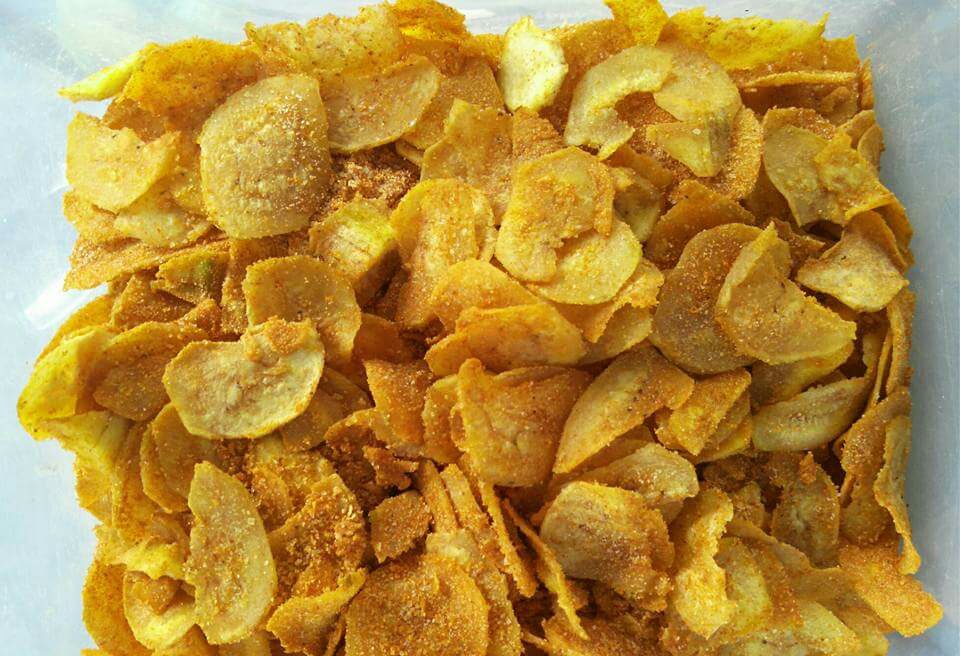
7. Minum air kosong berbanding minuman berperisa, minuman berkarbonat dan minumam yang manis.
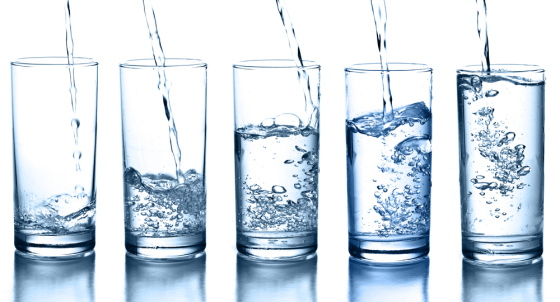
Senang bukan? Ikutilah panduan pemakanan sihat semasa hari raya ini, agar usaha anda untuk menurunkan berat badan sepanjang bulan Ramadhan tidak sia – sia. Bagi individu yang mempunyai masalah kesihatan, hari raya bukanlah tiket untuk anda menikmati juadah tanpa mengambil kira faktor kesihatan ya!
Akhir sekali, selamat menyambut Hari Raya Aidilfitri, semoga hari raya ini memberi keceriaan kepada kita semua!
Rujukan
1. Kementerian Kesihatan Malaysia (KKM). Bahagian Pemakanan. Perancangan dan Pemilihan Menu Sihat Rumah Terbuka Aidilfitri. http://nutrition.moh.gov.my/wpcontent/uploads/penerbitan/buku/Menu%20Rumah%20Terbuka%20Hari%2 0Raya%202013.pdf
2. Kementerian Kesihatan Malaysia (KKM). Bahagian Pemakanan. Makan Secara Sihat di Hari Raya. https://www.infosihat.gov.my/index.php/multimedia/bukukecil/item/makan-secara-sihat-di-hari-raya
3. Jabatan Kesihatan Negeri Perak. Kementerian Kesihatan Malaysia (KKM), bahagian Pemakanan. Makan secara sihat di hari raya. http://jknperak.moh.gov.my/v4/index.php/my/arkib-berita/69-informasikesihatan/509-makan-secara-sihat-di-hari-raya.html
4. Makan secara sihat di hari raya. http://jknperak.moh.gov.my/v4/index.php/my/arkib-berita/69-informasikesihatan/509-makan-secara-sihat-di-hari-raya.html
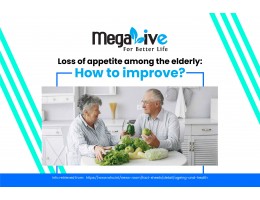
Loss of Appetite among Elderly, How to Improve?
Worldwide, people are living longer. With the advancement of medical technology, people in this era are expected to live into their sixties and beyond. By 2050, China alone will have as many as 2 billion people in this age group, compared to about 120 million in the rest of the world. Today, 125 million people are aged 80 years old and older, worldwide.

While in Malaysia, the number of Malaysians aged 60 years and above is estimated to be 1.4 million and is projected to increase to 3.3 million in the year 2020. The percentage of the population that is 60 years of age or older has also increased over the years: 5.2% in 1970, 5.7% in 1990, and 6.3% in 2000. In the year 2020, this percentage is expected to be 9.8% of the population. Between 1990 and 2020, the population of Malaysia is expected to increase from 18.4 million to 33.3 million, an increase of 80%. The aged population, however, is expected to increase from 1.05 million in 1990 to 3.26 million over the same period, an increase of 210% (2).
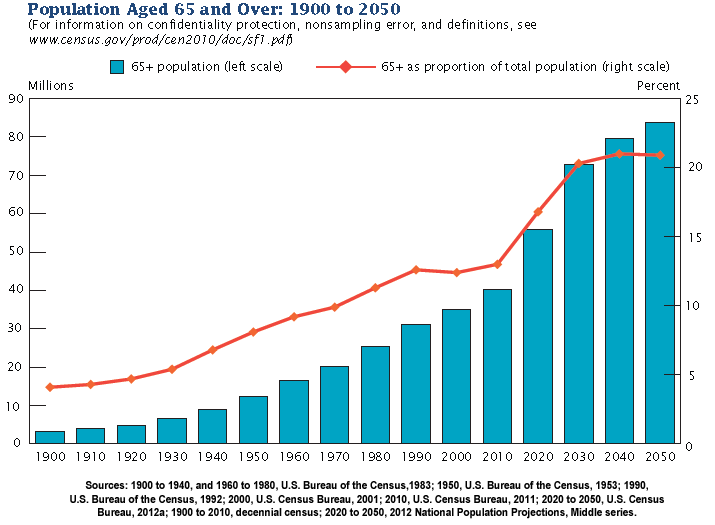
The population is ageing at a much faster rate than in the past. All countries face significant challenges in ensuring that people's health and social systems are prepared for this demographic shift. The healthcare system and technology must keep up with people's health and needs (1,2).
Many more literatures on the topic of geriatric (elderly) health must be discussed. According to research, the elderly face issues such as frailty, which is frequently exacerbated by issues such as urinary incontinence, instability, falls, and acute confusion states. Furthermore, as people get older, they are more likely to develop chronic diseases (2).
All these issues contribute to elderly malnutrition; in addition, poor dentition, changes in dietary habits, and the types of food available all play important roles in this situation. Thus, if you have an elderly person with a poor appetite, make sure to rule out all physical issues before attempting to improve the elderly person's appetite (2,3).
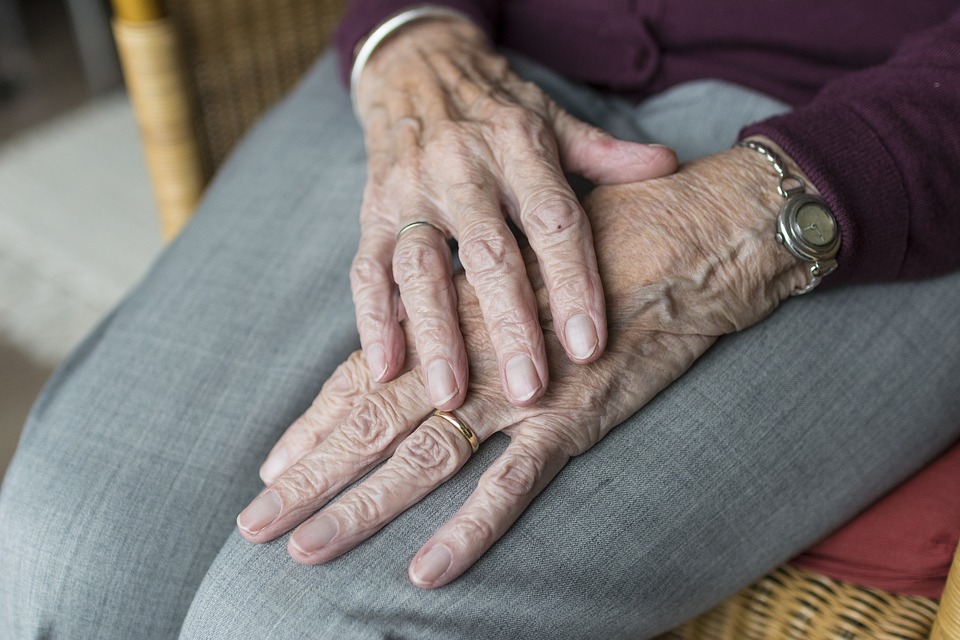
Ways to stimulate the elderly's appetite as a carer or ways for the elderly to try it themselves (3,4):
- Share a meal with your loved one or encourage them to join others for a weekly lunch or dinner. According to studies, seniors who eat with others eat more and make healthier food choices.
- Keep in mind that your loved one's preferences may change. Make nutritious meals that are bright and colourful, as well as high in vitamins and minerals. However, do not overburden your loved ones with large portions, as a plate piled high with food may overwhelm them and discourage them from eating at all.
- Eating meals on a set schedule makes it a routine part of your loved one's day. Every day of the week, breakfast, lunch, dinner, and snacks should be served at the same time.
- Serve higher-nutrient foods in smaller portions. When they see a large amount of food in front of them, some seniors become overwhelmed. Serve smaller portions instead of a large plate. You could even implement a daily routine in which your senior consumes 5 small meals rather than 3 larger ones.
- You can still cook in larger batches to save time. Simply store it in smaller individual containers to make it easier to reheat.
- Put down your utensils. The frustration of not being able to use a spoon, fork, or knife may cause some elderly people to refuse to eat at all. Serve foods that can be eaten without utensils to make eating easier for them.
- Have plenty of easy-to-eat snacks on hand. Some seniors would rather graze throughout the day than eat full meals. That is also acceptable. Make sure you have plenty of healthy, delicious, and easy-to-eat snacks on hand.
- Whip up some milkshakes or smoothies. Consider serving more liquid-y foods if chewing is difficult or tiring, even with small pieces of food. You can also try making this liquid diet with different fruits and vegetables. Do not be concerned about fat or cholesterol unless your elderly relative has specific health issues. After all, the challenge is to get enough calories into them.
- Consumption of complete milk formula such as Nutrasure and multivitamins such as Ginviton can help bridge the gap between poor food consumption/highly nutritious food and their health needs!
- Keep track of what works for you. Take notes so you can remember what foods your senior likes, what they don't, and what might be bothering their stomach. You can also observe when they are more willing to eat or when they have a stronger appetite. Keeping track allows you to experiment more with what works and avoid what doesn't.
References
1. World Health Organization (WHO). Key Facts. Ageing and Health. https://www.who.int/news-room/fact-sheets/detail/ageing-and-health
2. Mafauzy M. (2000). The Problems and Challenges of the Ageing Population in Malaysia. The Malaysian Journal of Medical Sciences. https://www.ncbi.nlm.nih.gov/pmc/articles/PMC3406209/
3. American Senior Communities. Is Loss of Appetite in Elderly is the Sign of Something Else? https://www.asccare.com/loss-appetite-elderly-sign-something-else/
4. Daily Caring. 6 Ways for Seniors with No Appetite to Eat. https://dailycaring.com/6-ways-to-get-seniors-with-no-appetite-to-eat/
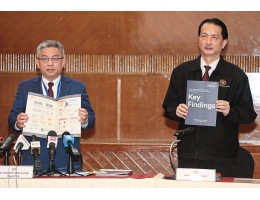
TINJAUN KEBANGSAAN KESIHATAN MALAYSIA (NHMS) 2019
Tinjauan ini mengkaji beberapa perihal aspek kesihatan yang terpenting seperti penyakit tidak berjangkit yang dialami oleh rakyat Malaysia iaitu obesiti, kencing manis, darah tinggi, dan masalah kolesterol. Ia juga merangkumi aspek pemakanan seperti pengambilan makanan dan minuman sihat, aspek kesihatan mental, kesihatan seksual dan pengambilan dadah. Selain daripada itu, tinjauan ini juga mengkaji aspek yang melibatkan perkhidmatan kesihatan di Malaysia.
Terdapat beberapa perkara serius menurut hasil dapatan ini iaitu;
1 daripada 2 dewasa di Malaysia adalah obese!
Obese atau obesity adalah masalah lebihan berat badan yang di alami oleh individu, yang berpunca daripada pelbagai faktor. Namun, apa yang lebih membimbangkan adalah, menjadi obese ini sendiri adalah merupakan risiko utama kepada masalah kesihatan seperti kencing manis, darah tinggi, kolesterol, masalah jantung serta masalah kesihatan yang lain – lain lagi.
Jika perkara ini berterusan, bayangkan setiap orang yang anda jumpai separuh daripadanya adalah obese dan mempunyai kencing manis, darah tinggi dan sebagainya!! Menurut kajian ini, inidividu yang mengalami obesity tertinggi adalah wanita iaitu sebanyak 57.6%, kaum india iaitu sebnayak 63% dan dalam kalangan mereka yang berumur 55 – 59 tahun.

Antara lain perkara yang membimbangkan ialah masalah kencing manis dalam kalangan rakyat Malaysia.
1 daripada 5 dewasa mengalami masalah diabetes!
Diabetes atau kencing manis adalah keadaan di mana paras gula dalam darah menjadi tinggi. Hal ini berpunca daripada kekerapan pengambilan makanan yang tidak sihat. Makanan yang tinggi karbohidrat, gula dan lemak dan gaya hidup yang tidak aktif.
Selain daripada peratusan obesity yang semakin meningkat saban hari, yang mengeruhkan keadaan ini juga adalah pengambilan minuman yang manis, menurut tinjauan,sebanyak 53.2% individu di Malaysia minum minuaman manis yang disediakan sendiri setiap hari, 4.2% individu minum minuman berkarbonat setiap hari dan 6.7% individu minum minuam 3 dalam 1 setiap hari.
Menurut tinjauan ini, seramai 3.9 juta dewasa berusia lebih dari 18 tahun menghidapi penyakit kencing manis. Kebanyakkan dari mereka yang berumur 18 – 40 tahun tidak tahu bahawa mereka menghidapi kencing manis.
Antar negeri yang mempunyai prevalen kencing manis yang tinggi adalah Negeri Sembilan (33.2%), Perlis (32.6%), dan Pahang (25.7%).
Antara gejala yang melibatkan masalah kencing manis ialah, keletihan, kerap membuang air kecil, kehausan yang melampau, penurunan berat badan, dan kerap mengalami jangkitan kuman. Sekiranya anda tidak mempunya gejala seperti ini, anda juga boleh melakukan saringan kencing manis jika anda mempunyai berat badan yang berlebihan, BMI melebihi 23 kg/m2 atau ukur lilit pinggang melebihi 80 cm untuk wanita dan 90 cm untuk lelaki.
Kegagalan mengenal pasti masalah kencing manis dengan lebih awal akan menyebabkan komplikasi yang lebih serius di masa akan datang.

4 daripada 10 dewasa mengalami masalah kolesterol
Seramai 8 juta rakyat Malaysia mempunyai masalah tinggi kolesterol, iaitu 4 daripada 10 orang mengalaminya. Bacaan kadar bagi tinggi kolesterol ialah sebanyak 5.2 mmol dan ke atas. Mereka yang berumur 40 – 59 tahun adalah individu yang paling ramai tidak mengetahui bahawa mereka mempunyai tahap kolesterol yang tinggi. Hanya 63% daripada individu yang mempunyai masalah kolesterol yang tinggi Berjaya mengawal tahap kolesterol dengan pengambilan ubat – ubatan.
3 daripada 10 dewasa mengalami Hipertensi
Hipertensi atau tekanan darah tinggi yang tidak dikawal boleh mengakibatkan serangan jantung, strok dan pelbagai penyakit kardiovaskular yang lain. Bacaan kadar tekanan darah tinggi yang tidak terkawal ialah bacaan yang melebihi 140/ 96 mmHg. Lelaki yang berumur 30 tahun ke bawah adalah mempunyai 3 kali ganda lebih ramai menghidapi hipertensi berbanding wanita. Dalam 6.4 juta rakyat Malaysia yang mengalami hipertensi atau tekanan darah tinggi, hanya separuh yang menyedari bahawa mereka menghidapi penyakit ini.
Kesimpulannya, masalah seperti obesity, kencing manis, darah tinggi dan tinggi kolesterol mempunyai perkaitan rapat antara satu sama lain. Penyakit – penyakit ini membawa komplikasi yang lebih serius dalam jangka masa panjang dan merupakan risiko kepada masalah kardiovaskular yang juga merupakan penyebab kematian nombor satu di Malaysia. Seramai 1.7 juta individu di Malaysia mempunyai tiga faktor risiko manakala seramai 3.4 juta individu di Malaysia mengalami faktor risiko utama.
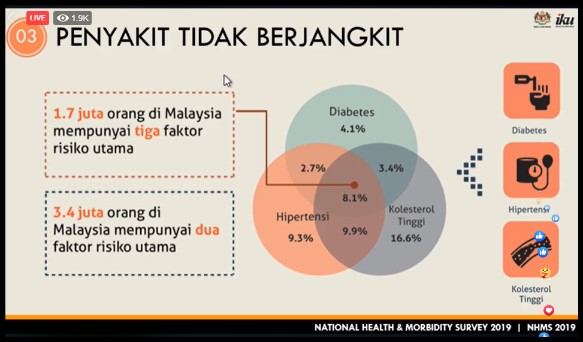
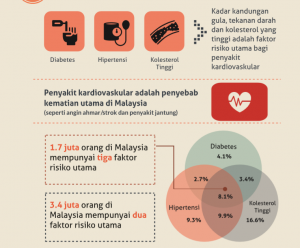
Bagi mengatasi masalah ini, individu perlu mengawal bacaan tekanan darah iaitu bacaan perlu kurang dari 140/ 90 mmHg. Individu juga perlu mengamalkan diet yang seimbang dan sihat bagi mengekalkan berat badan yang ideal, selalu bersenam dan menghindari rokok dan alkohol.
Rujukan
-
Tinjauan Kebangsaan Kesihatan dan Morbiditi (2009). Penyakit tidak berjangkit, permintaan jagaan kesihatan dan literasi kesihatan. Penemuan Utama, Infografik Booklet. Institut Kesihatan Umum.
-
Tinjauan Kebangsaan Kesihatan dan Morbiditi (2009). Lembaran Fakta. Penyakit tidak berjangkit, permintaan jagaan kesihatan dan literasi kesihatan. Lembaran Fakta. Institut Kesihatan Umum.
-
Portal Rasmi Pendidikan Kesihatan Malaysia (MyHealth) (2016). Kementerian Kesihatan Malaysia. Bagaimana Diabetes dikesan? http://pendidikanpesakit.myhealth.gov.my/bagaimana-diabetes-dikesan/
-
Portas Rasmi Pendidikan Kesihatan Malaysia (MyHealth) (2008). Kementerian Kesihatan Malaysia. Obesity and Overweight. http://pendidikanpesakit.myhealth.gov.my/bagaimana-diabetes-dikesan/

DURIAN!!! Eat whole durian is equivalent to 3 bowl of rice?
Durian or ‘King of fruit’ is a well-known fruit for its smell. Anthony Bourdain, the late renowned food critic describes durian as “It smelled like you buried someone holding a big wheel of Stilton (cheese) in his arms, then dug him few weeks later” (1). That is to describe how horrible the smell of durian is, but to certain people who like to eat durian the smell of durian to them is heaven!
Durian actually has more than 30 species but the one that people usually eat are about 8 species only, due to its exotic nature, people have started to commercialized durian even to the international level. The most common durian being exported and widely consumed is Durio Zibethinus (2).

Due to its popularity, people started to questioning about durian health benefits, whether it is good or bad for health? Unlike apple, orange, guava and many other common fruits where people always equate it to “an apple a day keeps the doctor away” which means, consuming all these fruits are going to make you healthier, since it is packed full with nutrients that is good for body. For durian, the opinion regarding its health effect is mixing, some people say that it is good for health and can even be used to alleviate infertility or PCOS, Polycystic Ovarian Syndrome and some people say that it is heaty thus cannot be consumed too much etc. (3).
In general, durian is considered a safe fruit to eat just like any other fruit, but since durian has high calorie value, thus it is not advisable to consume in large amount unlike other fruits. Look at the infographic below to understand, calorie in durian in comparison with other fruits (4).

Here is the calorie of durian per seeds, surprisingly eating 5 seeds of durian is equivalent to a bowl of rice! ANDDDD IF A DURIAN CONSISTS OF 15 SEEDS IT IS EQUIVALENT TO 3 BOWL OF RICE! Thus, the recommended intake of durian is only 2-3 seeds, which is equivalent to about per serving of fruits or 90 kcal.

Though, it is crystal clear here that it is safe to eat durian within recommended amount, but there are people who should be even more cautious in consuming durian, that is people who are obese, people who have diabetes and people who have kidney problem. As for people who are obese and diabetes, it is due to its high calorie, high carbohydrate and high fats value thus should be extra careful on the consumption of durian. Whereas for people with kidney problem or undergoing dialysis, due to high potassium content in durian and it is difficult for their body to excrete potassium, thus, they must avoid eating TOO MUCH durian at all cost (4)!

Albeit durian has many health benefits, when it comes to its consumption with other foods and beverages such as alcohol, it is said that it can interfere with liver function. In detail, durian contain sulphur-containing volatiles which can inhibit the enzyme aldehyde dehydrogenase (enzyme that helps in process alcohol), thus explaining why consuming durian together with alcohol is a deadly mixed (4).
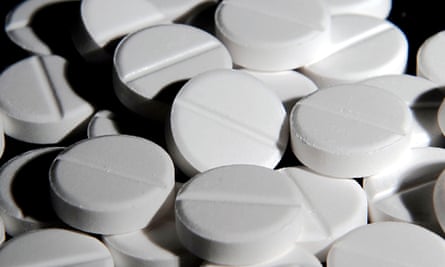
As for the consumption of durian with paracetamol, there is no study on human has been conducted, so far. But there is study on lab rat regarding this. The study shows that, rat that receive paracetamol and durian gives sign of hypothermic effect (significant drop in temperature) thus explain that the two mixture is toxic. However, the mechanism of toxicity is still unknown. To be safe, it is not safe to consume durian together with paracetamol (5).
In conclusion, for people who does not have any health concerns, consume durian within the recommended intake and consume it in moderation, is very much advisable. While for those who have health concerns, eat durian very minimally, it is advisable to eat other types of fruit that have lower calorie count as compared to durian, but since it is in the season thus consume it very minimally with caution towards calorie intake from other food types as well is recommended.
References
- The Star. Benefits of eating durian? Its rich in antioxidant but its fattening (2019). https://www.thestar.com.my/lifestyle/health/2019/09/10/eating-durian-healthy-or-not/ (Accessed on June 17, 2020).
- Tan M.C & Shyamala A. (2018). Exploring the Nutritional Content and Benefits of Durian (Durio Zibethinus). Institute of Bioproduct Development, Universiti Teknologi Mara. https://www.utm.my/ibd/project/exploring-the-nutritional-contents-and-benefits-of-durian-durio zibethinus/#:~:text=Durian%20is%20widely%20celebrated%20for,and%20protect%20against%20cardiovascular%20diseases. (Accessed on June 17, 2020).
- Reshma M. Ansari (2016). Potential Use of Durian Fruit (Durio Zibenthinus linn) as an Adjunct to treat Infertility in Polycystic Ovarian Synrdome (PCOS). PubMed. https://pubmed.ncbi.nlm.nih.gov/26778225/ (Accessed on June 17, 2020).
- International Medical University (IMU). Can A Durian A Day Keep the Doctor Away? http://imunews.imu.edu.my/people/can-a-durian-a-day-keep-the-doctor-away/ (Accessed on June 17, 2020).
- A. Chua., H. Nurhaslina., S.H. Gan. (2008). Hyperthermic Effect of Durio Zibethinnus and Its Interaction with Paracetamol. https://pubmed.ncbi.nlm.nih.gov/19271022/#:~:text=Because%20durian%20(Durio%20zibethinus)%2C,a%20risk%20of%20toxic%20effects
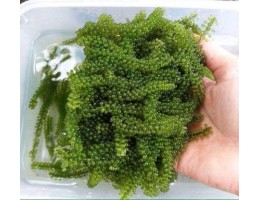
Latok? Is the New Hype Really Good for Health?
On the social media recently, many people starts to sell grape seaweed or better known as latok. It is said that, latok has many health benefits, but to people from the Peninsular of Malaysia, latok is the new hype. Since many people saying that it is good for health, so people have starting to try and consume it. But how true is the claimed?

Latok, grape seaweed or its scientific name is Caulerpa Lentilifera, is a common ‘ulam’ for Sabahan. Study on latok in Malaysia is still very little perhaps because previously there is only small number of people who consume it regularly, but there are actually extensive studies conducted in Philippines on this latok, since it is a very common food in Philippines as well (1).
Surprisingly, according to studies, latok has various health benefits! However, the nutrient content in latok, is vary from one another based on its size, the location where it breeds, the ecosystem of its habitat and the maturity of latok when it is harvest (2).
Previously in Asian countries, seaweed has been utilized as a source of phycocolloids, thickening and gelling agents in the food industry. Since people have not yet discover it health benefits, perhaps it is about time for people to commercialized latok for its health benefits. Since studies shows that, latok is high with iron, zinc, calcium and fibre (2,3).
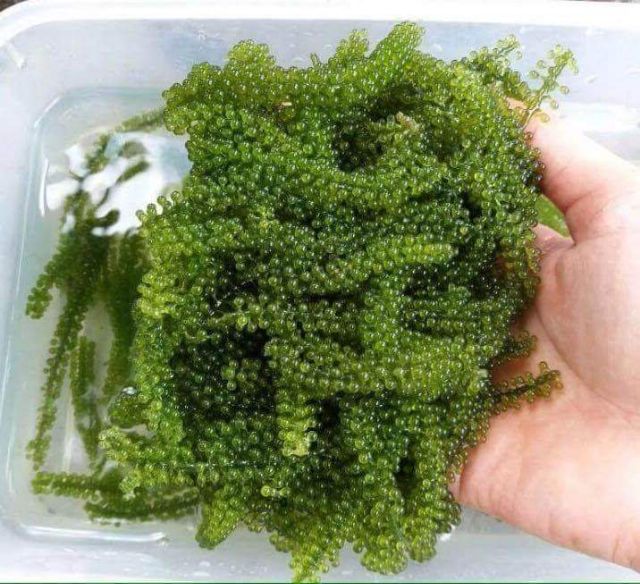
Latok is even recommended to be consumed by pregnant women, adolescents, and teenagers for its high calcium content, since these two groups of people is at the stage of needing high calcium for their growth and development (2,3).
Apart from its micronutrients, latok also has large amounts of polysaccharides, most of which cannot be digested by humans without the required enzymes for degradation. These polysaccharides can therefore be regarded as excellent source of dietary soluble fibre. This property therefore can lower the risk of constipation (2,3).
There are also studies claiming that, latok has the ability to lower the cholesterol, thus preventing heart disease and it has anti-cancer property (2,3). However, what more important is how people consume it. It is such a culture in Malaysia where people eat ‘ulam’ or vegetables with various kind of gravies such as sambal belacan, budu, cincalok, kicap and many others. It is such a waste to all these high content of nutrients where is supposed to be given benefits to the body but in returns give harm because all these gravies contain high salt content thus can even pose high risk for hypertension and cardiovascular diseases.
References
- Fadzilah A.K., Mohd Fadzely A.B., Maryati M., Noratiqah N., (2018). Utilization of natural resources: Preliminary study on ethnopharmacological application of ‘ulam’ or traditional vegetables among Sama- Bajau of Kampung Menunggui, Kota Belud, Sabah. https://doi.org/10.1063/1.5055431
- James David S. Alacantra., Nancy L.L., (2020). Mineral Availability, dietary fiber contents and short chain fatty acid fermentation product for Caulerpa Lentilifere and Kappaphycus Alvareezii Vol. 31 (1). KIMIKA.
- Cherry P., Cathal O’Hara., Pamela J.M., Emeir M.M., and Philip J.A., Risk and Benefits of Consuming Edible Seaweed. Nutrition Review. Vol 77(5): 307 -329
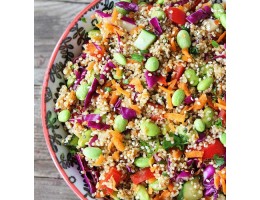
Quinoa, is it really superfood?
Superfood is a non-medical term, usually refers to foods that have health promoting properties. According to American Heart Association (AHA), there is just no specific category when it comes to superfood. It mostly is plant-based food but sometimes it can be fish and dairy that are nutritionally dense as well. Superfoods usually contain unusually high content of antioxidant to ward of cancer, high in fiber which does not spike blood glucose thus have the properties to prevent diabetes and digestive problem. It is also high with healthy fat to prevent heart disease and contain phytochemicals that is responsible for food deep colors. Example of superfoods are green tea, acai berries, salmon and quinoa (1,2).
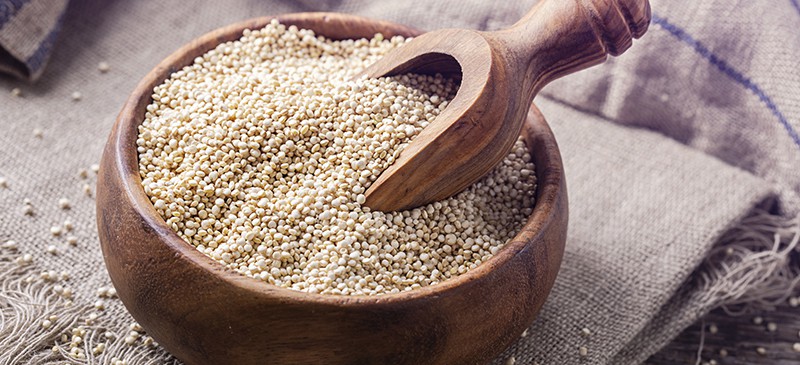
What is quinoa?
Quinoa or also known as pseudo-cereals is world most popular superfood, even recognized by Harvard School of Public Health. Quinoa is gluten free, high in protein and one the few plant foods that contain complete all nine essential amino acids (3).
It is not only rare to have all the nine essential amino acids in a food, but it is as well is important and easy for us! To make it easy to understand, for amino acid there are two kind of amino acids, essential and non-essential. Essential amino acid is the amino acids that cannot be synthesized by human body, it must be gathered from diet, while the non-essential amino acids is the amino acids that can be synthesized by human body itself. Amino acid is important for the growth, repairing of body tissue, breaking down the food and many others. Thus, when quinoa has its all, this superfood really is NUTRITIOUS (4,5)!
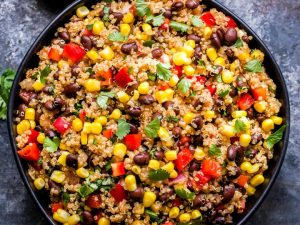
Quinoa also is high in fiber, magnesium, B vitamins, iron, potassium, calcium, phosphorus, E vitamin and various antioxidants (4,5).
Is Quinoa really superfood?
Yes! Even according to Harvard School of Public Health! Quinoa is technically a seed, but due to its nutritious properties it is considered as whole grain. One cup of cooked quinoa provides about 8g of protein and 5g of fiber. Thus, it really promotes satiety and is suitable for breakfast, lunch, and dinner.
When it comes to superfood, there are various claim with regards to this. Some critical claim said that, a superfood might be a superfood but the process itself might make the superfood not as nutritious as it would be, which is why, it is really important to understand the cooking process and food process itself.
As for quinoa, it has different level of maturity of seeds even in the same plant, thus it must be hand-picked undergo the process of removing saponin – a bitter chemical compound coating the exterior part of quinoa that act as natural pesticides. After this process, quinoa is then healthy and safe to be eaten!
But due to its high nutrient content, some people said that, it not really palatable, especially with the Asian or Malaysian palate! Thus, there are few cooking or serving suggestion with regards to quinoa if you are to consume this superfood!
Replace your carbohydrate with quinoa
Since quinoa is better than the average rice, pasta, and many other carbs, thus it is advisable to replace it with quinoa. As an example, you may replace quinoa in sushi, pasta salad and you can even prepare it as a breakfast cereal by simply cook it with milk or water and diced in some fruits or pop in some cinnamon and a table spoon of nuts!
But, since Quinoa is prominently in cultivated in country such as Peru, Chile, Bolivia and Ecuador, thus it is really difficult to get the quinoa in the country like Malaysia, so what can one do with regard to this ?
It is to.. choose food product that has quinoa as its main ingredients!
You may drink it as it is and still get the benefits from quinoa if its in powder form, or you can even add this product in your salad, as gravy or in less sugar cookies, muffin, bownies or even pancake!
Example below on how quinoa can be served as!
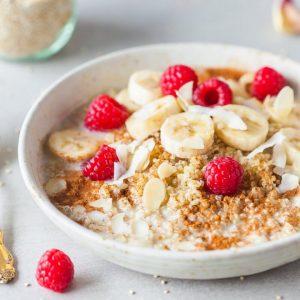
Quinoa as breakfast cereal
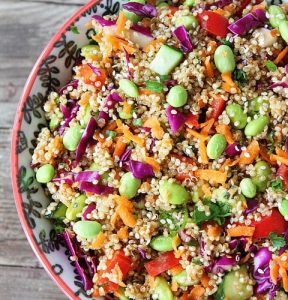
Quinoa with salad
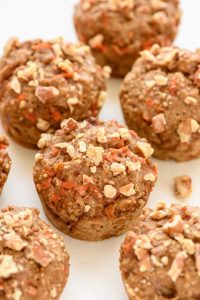
Quinoa muffin
References
-
Christopher Wanjek (2019). What are Superfood? com. https://www.livescience.com/34693-superfoods.html (Accessed on July 6, 2020).
-
Mellisa Conrad Stoppler. Medical Definition of Superfood. https://www.medicinenet.com/script/main/art.asp?articlekey=125459 (Accessed on July 6, 2020).
-
Harvard T.H. Chan School of Public Health. https://www.hsph.harvard.edu/nutritionsource/food-features/quinoa/ (Accessed on July 6, 2020).
-
Kriss Gunnars (2018). 11 Proven Benefits of Quinoa. Healthline. https://www.healthline.com/nutrition/11-proven-benefits-of-quinoa (Accessed on July 6, 2020).
-
Medline Plus. Amino Acids. https://medlineplus.gov/ency/article/002222.htm (Accessed on July 6, 2020).

Tips for Buying Healthy Groceries
The demand for healthier food is on the rise, leading to more options in the market. A Forbes report in 2017 noted that over 23 billion people engaged with food-related content, and searches for healthy food topics like vegan or gluten-free food on the internet increased by more than 100% (1).
As people increasingly look for healthier food choices, and with numerous options available, a key question emerges: How do consumers go about making the right decisions when buying healthy food? Is the "healthy" label more about marketing than the actual nutritional value of the food?
Grocery shopping might seem straightforward, but when you factor in your budget, the number of people to feed, and the need for healthier food choices, it can become a bit overwhelming—especially if there are specific food allergies or medical conditions in the household. Don't worry; we're here to simplify things and make your grocery shopping experience smoother!
-
Plan (2, 3, 5): To streamline your grocery shopping, consider planning your meals for the week. This not only helps you stick to your budget but also ensures that you make healthier food choices. Meal planning saves both time and money while guaranteeing that you and your family enjoy nutritious meals. Here's an example of a weekly meal plan for a family of two:
-
Monday:
-
Breakfast: Oatmeal with fruit
-
Lunch: Grilled chicken salad
-
Dinner: Baked fish with vegetables
-
-
Tuesday:
-
Breakfast: Greek yogurt with granola
-
Lunch: Quinoa and vegetable stir-fry
-
Dinner: Lentil soup and rice
-
-
Wednesday:
-
Breakfast: Whole grain toast with avocado
-
Lunch: Turkey and vegetable wrap
-
Dinner: Brown rice with roasted chicken
-
-
And so on for the rest of the week. Planning not only ensures a variety in your meals but also helps you make healthier choices while staying within your budget.
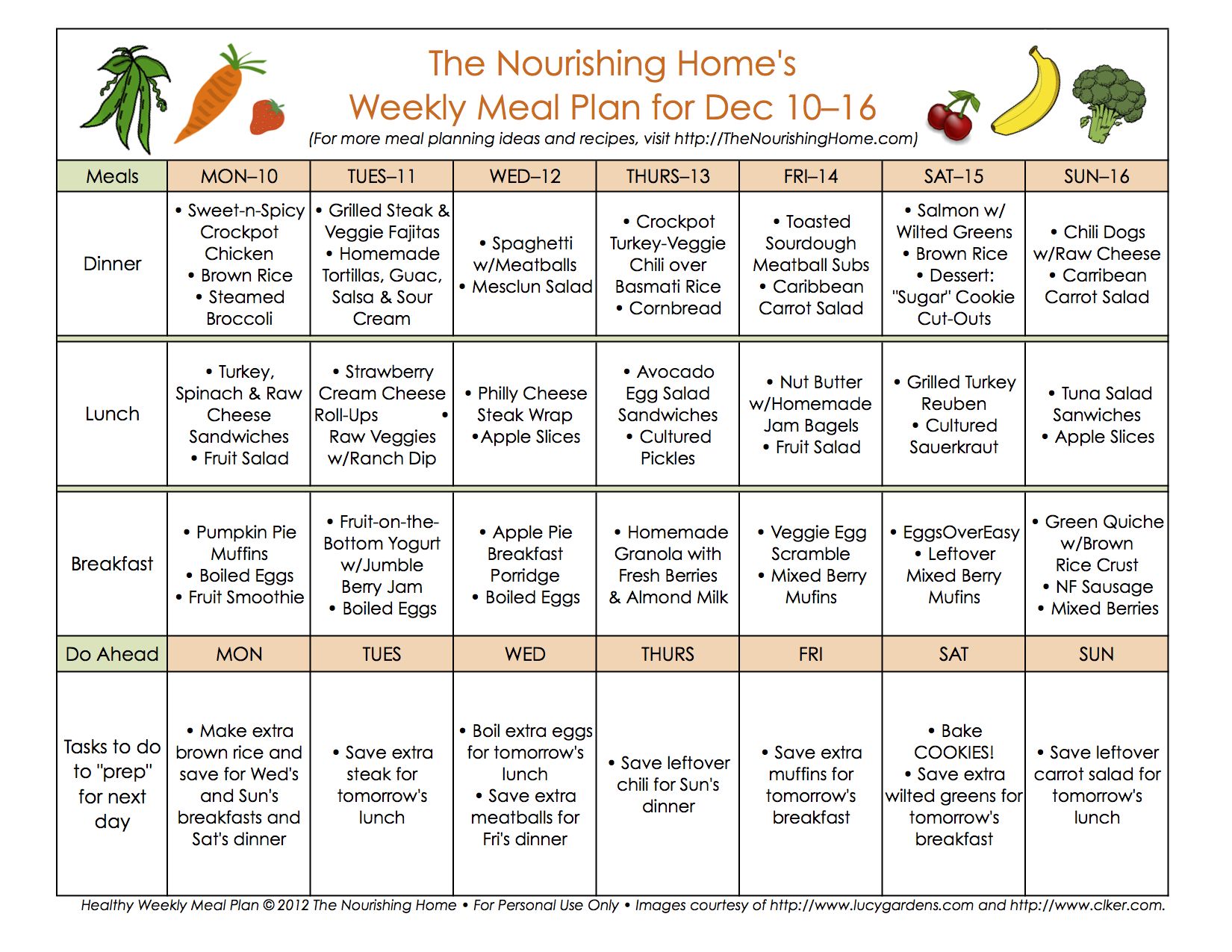
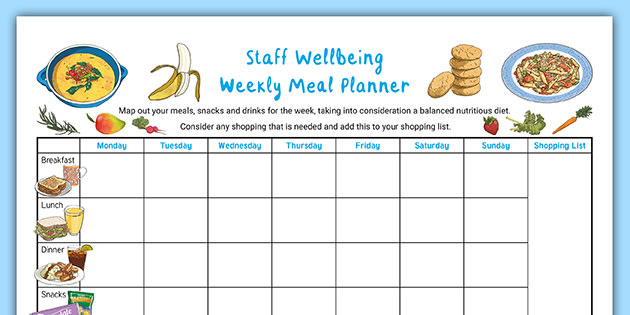
You may get this kind of template for weekly meal planner online since it can be exciting to incorporate your family members favourite dishes or try a new recipe using it. Based on this, you get to know what you need to stock in your kitchen and pantry with.
-
Looking for Healthy Food in the Market (3, 4, 5, 6, 7)
Now comes the tricky part! Once you've planned your meals for the week, consider breaking them down into food categories. Supermarkets or your local grocery store usually organize their items by class. These classes typically include carbohydrates, proteins, fats, fruits, and vegetables.
Carbohydrates (3, 4, 5)
Maintaining a healthy, balanced diet for you and your family involves consuming food in variation, balance, and moderation. When it comes to carbohydrates, ensure that your sources are diverse. Examples of carbohydrate sources include pasta, rice, bread, noodles, and certain vegetables like potatoes. Throughout the week, vary your food choices from these sources, emphasizing low glycemic index (GI) and whole-grain products over high GI options.
Glycemic Index (GI): This is a rating system for foods containing carbohydrates, indicating how quickly each food affects your blood sugar level when consumed on its own. High GI foods, like sugary items, soft drinks, white bread, potatoes, and white rice, lead to a rapid increase in blood sugar. On the other hand, low GI foods are broken down slowly, providing a gradual increase in blood sugar and promoting a longer feeling of fullness (satiety). Examples of low GI foods include green leafy vegetables, whole grains like oats and brown rice, and legumes. Incorporating a variety of these options into your weekly meals contributes to a healthier and more satisfying diet.
Protein (3,4).
Protein can be obtained from various food sources, with the commonly known options being chicken, meat, and fish. Additionally, soy-based foods like 'tauhu' and 'tempeh' are rich in protein. It's worth noting that 'tempeh,' a local soy-based food, not only boasts high protein content but is also abundant in probiotics.
When selecting meat, it's advisable to opt for white meat over red meat. This choice is driven by the fact that red meat contains elevated levels of saturated fats, which can adversely affect heart health. While occasional consumption of red meat is acceptable, moderation is key to maintaining a heart-healthy diet. Incorporating dairy products is also crucial for achieving a balanced and nutritious meal. Therefore, consider including dairy products in your diet to support overall health.
Fats (7)
Various types of cooking oils flood the market, often marketed for their low cholesterol content. But is this claim accurate? It turns out, this is largely a marketing strategy. Cooking oils like sunflower oil, canola oil, corn oil, olive oil, and even the widely used palm oil are all plant-derived. Consequently, plant-based foods generally do not contain cholesterol. Cholesterol is exclusively found in animal-based foods.
Below is the classification of cooking oil: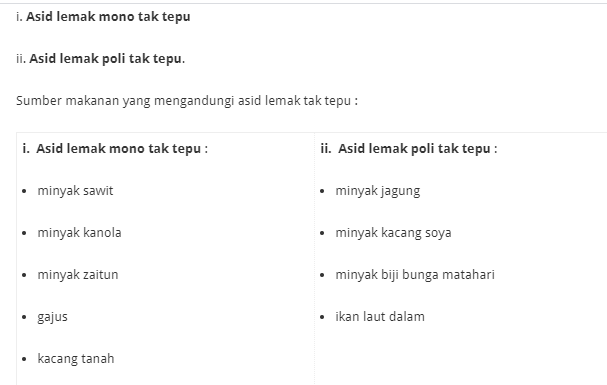
It is recommended to blend your cooking oils in a 1:1 ratio, ensuring an equal combination of monounsaturated and polyunsaturated fats.
Vegetables & Fruits (3,4,5).
When it comes to vegetables, it is recommended to aim for three servings per day, making them a significant portion of your market purchases to ensure everyone gets enough. However, dealing with vegetables can be a bit challenging due to their short lifespan.
Ensure that 20%-30% of your vegetable intake consists of green leafy vegetables. Although these vegetables, being a source of insoluble fiber, benefit digestion and help regulate blood glucose levels, they are also highly perishable. To diversify, consider incorporating rhizome vegetables like carrots and radishes, along with tuber vegetables such as potatoes.
Tuber vegetables are generally high in carbohydrates and aid in digestion but can cause a spike in glucose levels. Thus, exercise caution when consuming this type of vegetable.
3. Looking for LOW sodium, LOW sugar, LOW fat (6)
Always scrutinize food labels, especially for condiments. However, it is also advisable to turn to natural herbs to enhance the flavor of your dishes. Garlic, ginger, celery, spring onion, turmeric, and chili powder are examples of herbs that can elevate the taste of your meals.
Regarding condiments, it's crucial to note that "less sugar," "less salt," and "low fat" don't imply an absence of these components; rather, they signify an improved formulation from previous versions. For instance, if the previous formulation contained 30g of salt, the current one might have only 15g. Therefore, while using these reduced-salt, sugar, and low-fat condiments is a healthier choice, it's still essential to employ them in moderation for optimal health benefits.
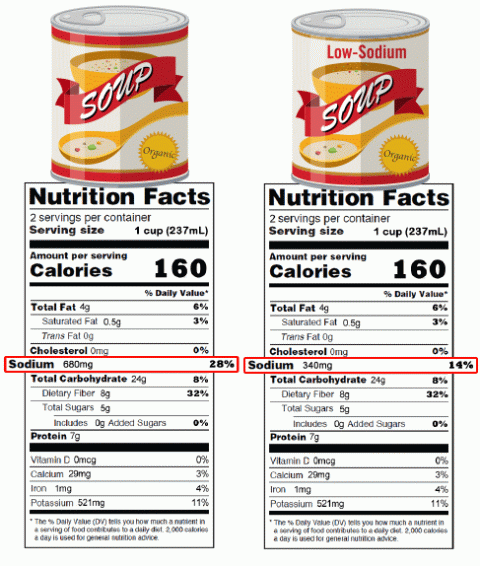
In conclusion, while purchasing healthy food is crucial for maintaining a nutritious diet, the method of cooking is equally important. Prioritize cooking techniques such as boiling, grilling, and steaming to ensure the nutritional value of your meals is preserved. Remember, taste preferences can be cultivated by training your taste buds to appreciate healthy foods. Over time, you will find yourself adapting to a healthier diet and making mindful choices that contribute to your overall well-being.
References
-
How to make healthy shopping grocery list (n.d). https://www.healthline.com/nutrition/healthy-grocery-list#TOC_TITLE_HDR_5 (Accessed on August 20, 2020).
-
Marketing Healthy Food: Strategies to make discovery easier (2017). https://www.forbes.com/sites/matzucker/2017/02/22/marketing-healthy-food/#4e329aa462e8 (Accessed on August 20, 2020).
-
Kathleen M.Z., 10 Tips for Healthy Grocery Shopping (n.d). https://www.webmd.com/food-recipes/features/10-tips-for-healthy-grocery-shopping#1 (Accessed on August 20, 2020).
-
Make a Grocery List in a Minute (n.d). https://www.webmd.com/food-recipes/guide/grocery-list#1 (Accessed on August 20, 2020).
-
Food Network. Katie Allen. Smart Shopping Guide for Healthy Meals (n.d). https://www.foodnetwork.com/how-to/articles/a-guide-to-smart-supermarket-shopping-from-the-fn-kitchens (Accessed on August 20, 2020).
-
Ministry of Health. My Health Portal. NurAidaliana Abas. Lemak dan Kolesterol (2015). http://www.myhealth.gov.my/lemak-dan-kolesterol/ (Accessed on August 20, 2020).
-
National Health Service (NHS). What is the Glycemic Index (GI) (2018). https://www.nhs.uk/common-health-questions/food-and-diet/what-is-the-glycaemic-index-gi/ (Accessed on August 20, 2020).

The healthier you in 2021
Every year, everyone has new goals to achieve. Be it set up new goals to achieve or just simply carry forward the previous goals with some modification or just carry forward the previous goals as it is since it is not achieved yet or it has not becoming habit yet.
In this article we are going to share with you, three areas of health for the healthier you in 2021. They are nutrition, physical activity, and mental health. These three are really essential components of health that you need to put an effort to maintain especially as you grow older. World Health Organization (WHO) in its definition of ‘health’ as well emphasize on these three factors when describing what health is.
‘Health is state of complete physical, mental, and social well being and not merely the absence of disease or infirmity’
Which also explain why individual who are disabled or individual who is bedridden can also have the best state of health despite their lack in certain things and individuals with complete physical well being might also be not in their best state of health. Since health itself is more than what can be seen outside.

Nutrition
Ministry of Health has come up with Malaysian plate to helps Malaysian to easily practice healthy eating habit. This makes it even easier nowadays to follow the healthy eating regime, put more plant-based food into your diet. The requirement is 3 servings of vegetables per day and it is about 3 ladles of vegetables daily. The types of vegetables that should be consumed more is the non-starchy vegetables such as green leafy vegetables. When we consume plenty of plant-based food, it will reduce the intake of food from carbohydrates, protein, and fats. Which our current scenario is vice versa, the eating habit that most of us are currently is, we consumed too many carbohydrates, fats, and protein which is the contributor to the obesity and various diseases. It is no surprised that we are the fattest country in Southeast Asia.
By saying this, also implying that weight monitoring and be more mindful on what we put into our body such as the need to consume less saturated fat, trans fat and interesterification fat in our daily diet is a must. Being mindful of our ideal healthy weight helps us to be more cautious to choose food not only because of its calorie but because of its overall nutrition content, which is why apart from maintaining healthy body weight, it is also essential to start monitor your body parameters every year! You may do blood test, or simply go to the nearest pharmacy or clinic to check on you blood pressure, blood glucose, blood cholesterol level, and uric acid level. So, go and check your health parameters before end of this year so you may start planning for the healthier you in 2021 better with your health information.
Physical activity
Physical activity is one of the areas that is concerning healthcare professional especially for Malaysian women since in the previous years, we can see the gap in women who is exercise as compared to man, but not anymore. Nowadays, we can see that many Malaysian women started to exercise, be in the lady’s gym only or be it in the local cycling group in your neighborhood, you will meet women joining such activities nowadays which is a good sign. But still, more efforts need to be done to encourage women to exercise especially those new moms who is still adjusting motherhood. It is nice to see perhaps in the future gym with kids’ corner where mom can do their exercise while their kids still can enjoy their own activities all in one place.
Apart from this, if you are considering starting exercise in the new year, you may start with something you like, it can be cycling, jogging, Zumba, Pilates, dancing and many more. The interesting thing with exercise is that you can try various of things before you will find what suit you most, and when you have found that exercise that you like. You will have no more feeling like it is a torture.

As for elderly, perhaps to start with vigorous exercise is dangerous for your body, so simply stick to exercise that require simple motion but still makes you move around. It is as simple as gardening, tai chi, or any other house chores that makes you move your body and make sure you enjoy that so that you can put that into your habit!
Mental health
Apart from exercise can make body healthier it can as well improve mental health. Many people are becoming more stress and anxiety with regards to pandemic COVID19. Staying at home, practicing social distance, and wear mask has made people paranoid of going out and makes people have no source of comfort.
There are certain practices which can improve this according to World Health organization (WHO) such as take time daily for spiritual renewal, where you can allocate some of your time daily for reading, praying, meditate, and seek spiritual renewal. A heart primed with gratitude, forgiveness, and service help you soar over life difficulties, and challenges. Spend quality time with family and friends also helps in building strong heart and healthy mind. Relationship teach love and acceptance which makes more room for kindness which is as well a good fuel to content heart!
Lastly, manage stress and limit the use of tobacco, alcohol consumption and illicit drugs also will tremendously help. Also, if you think that the burden is too much to carry learn to let go, learn to share, and learn to accept things at is.

In conclusion,
With all these tips, we hope that 2021, will be our year to soar high, to achieve more things, to be magical and fill with lots more positive vibes, kindness, compassion towards one another as we have gone through a tough obstacle throughout 2020 from various sides, health, economy, and politically. Thus, its about time for us to be more understanding of one another and unite for the betterment of humankind!

Tips to eat healthily during the Chinese New Year celebration
Chinese New Year is here again, although just like last year and the year before, we have to celebrate this with the new norm, but this year we are more experienced with the SOPs, and many of us are able to celebrate the new year with our loved ones. Despite the new norm, we will still be having a feast of foods, because that is what Malaysian is and that is what a festival is. Here are some suggestions that we would like to share on how you can eat healthily during the Chinese New Year celebration.
Always use a smaller plate and limit your portion.
It is always preferable to consume only what is necessary rather than bingeing on them all because during festivals there are typically a variety of dishes and we tend to try them all. Try to include your seasonal favourite food, such as your aunt's favourite pie, even though you hardly ever eat it. However, avoid overindulging. Do not gorge yourself with food. Don't use the holiday as a free day. Eat with pleasure, but in moderation.

Balance your meals!
During a festival or holiday, you can still eat a balanced, healthy meal. It all depends on your choice of food. As an example, if you are going to treat yourself to some sweet treats, then make sure you consume fewer carbohydrates in your main meals. If you know that there will be no vegetables or fruits during the holiday or festive seasons, offer to make some. It can be as easy as just cutting and mixing fresh fruit into a bowl or cutting and mixing vegetables. Adding herbs or dressing is optional. This can also make everyone's snack options healthier. (Easy tips: Mandarin orange counts as a healthy snack!)
This is also a love sign. We hope for a healthy and prosperous start to the new year, so by keeping an eye on what we and our loved ones eat, it may make everyone feel warm and loved that someone is caring for everyone's health. A heart will be able to resonate with what is coming from yours.
Limiting your intake of alcohol and sugary beverages will help you maintain a healthy balance in your diet. You can still consume it, but be careful with how much!
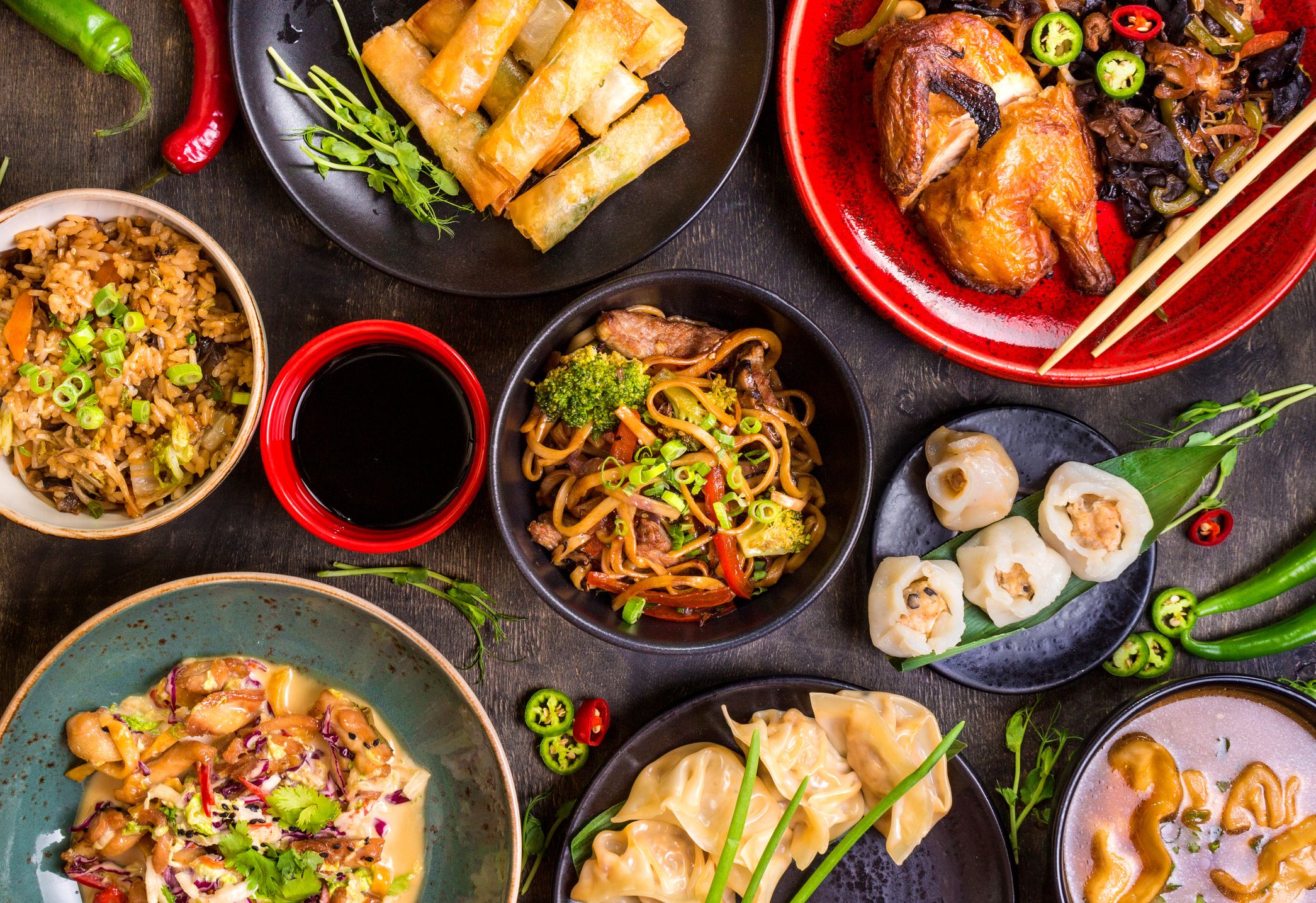
Do not skip meals to save up for a feast
Plan your mealtime, especially if you have diabetes. Do not skip meals to save up for a feast; it will make it harder to manage your blood sugar, and you will be hungry and more likely to overeat. If you slip up, get right back to healthy eating with your next meal.
Eat according to your usual schedule to keep your blood sugar steady. If your meal is served or prepared later than your usual mealtime, try to choose healthy snacks instead of snacks full of sugar and salt. This is especially essential for individuals with diabetes.
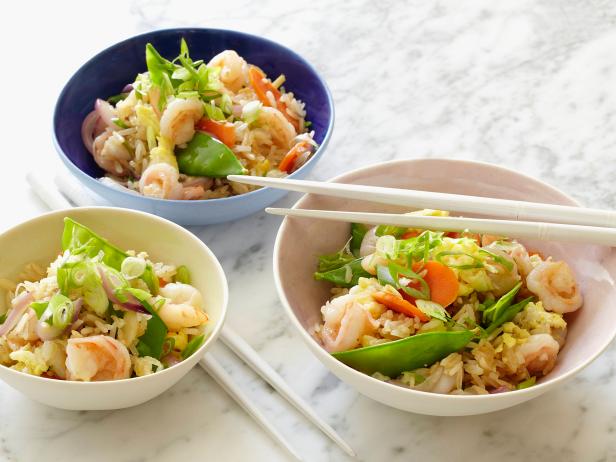
Keep moving!
Playing indoor and outdoor games will help regulate your blood sugar and burn calories. It will also help bond all the family members. Do not just glue your eyes to your phone or screen. Do talk to each other and ask about their well-being. But if this Chinese New Year you can’t celebrate it with your family members, do utilise the technology to be connected with them. You may also use various kinds of online games during the celebration to make sure everyone is involved. Online games like Quiziz are one way to make things fun!

Get your sleep!
During celebrations of anything, people always tend to overprepare, and the preparation is what makes you get a lesser amount of sleep. Although it’s fun to do the decorations together until late at night, try to schedule it earlier so that everyone will get enough sleep and good sleep quality. This is especially important for individuals with diabetes since less sleep is going to make their blood sugar go haywire as well.
References
-
Centre for Disease Control and Prevention (CDC). 5 Healthy Eating Tips for the holidays. https://www.cdc.gov/diabetes/library/features/holidays-healthy-eating.html (Accessed on Feb 5, 2021).
-
The Star. Facing and entirely new Chinese New Year. https://www.thestar.com.my/news/nation/2021/02/04/facing-an-entirely-new-chinese-new-year (Accessed on Feb 5, 2021).
-
20 Healthy Tips on how to not gain weight during the holidays. https://www.healthline.com/nutrition/tips-to-avoid-holiday-weight-gain (Accessed on Feb 5, 2021).

Probiotics and COVID-19
The World Health Organisation (WHO) defines probiotics as live microorganisms that, when administered in adequate amounts, confer health benefits on the host. It can be found in fermented foods (e.g., yoghurt, kefir, sauerkraut, tempeh, and kimchi), dietary supplements, and cosmetics.
Probiotics can contain a wide range of microorganisms. Lactobacillus and Bifidobacterium are the most common. Other bacteria, such as Saccharomyces boulardii, are also used as probiotics.
According to research, different types of bacteria have different effects on the human body. As a result, selecting the right strains and types of probiotics is critical for it to work on the said health concern.
How do probiotics aid in health maintenance?
There are a variety of ‘bugs’ that coexist naturally in the body, such as bacteria, fungi, parasites, and viruses; these are what scientists refer to as the microbiome. In the body of a healthy person, all these bugs coexist peacefully. The role of the microbiome is to promote the smooth daily operation of the human body. However, conditions such as infectious illness, a certain diet, and prolonged use of antibiotics and/or other bacteria-destroying medications can make the body more susceptible to diseases.
Due to this, scientists believe that consumption of probiotics influences the colonisation process of bacteria, which can lead to a speedy restoration of a healthy microbiome and a lower risk of getting sick.
Probiotics and COVID-19
Probiotics are linked with COVID-19 due to their ability to boost the immune system. Currently, the most extensive research on probiotics includes Lactobacillus, Bifidobacterium, Escherichia coli, Enterococcus, etc. Although probiotics mechanisms profoundly focus on the gastrointestinal tract, their effects are not confined to the digestive system alone. Probiotics can act on the entire body via immune modulation. Not only that, it also facilitates the immune system's development and maturation and regulates the interaction between host and pathogen by killing the pathogen and regulating the immune responses towards it.
One could argue that, but COVID-19 is a viral infection, not a bacterial infection. A systematic review described the efficacy of probiotics against viral diseases, with over 20 strains of probiotics demonstrating anti-inflammatory effects on the body and antibody production against viruses.
Furthermore, the study discovered that probiotics supplementation reduced viral loads. This is thought to be due to immune modulation by microbiota, which fights COVID-19 directly and reduces the risk of secondary infections caused by prolonged antibiotic exposure from multiple experimental COVID-19 treatments.
China’s National Health Commission recommended probiotics for severe COVID-19 patients to restore the intestinal balance and protect from secondary infections. Moreover, gut microbiota’s role in modulating lung diseases has been demonstrated.
In conclusion, the researchers in this study believe that many more studies on the effectiveness of using probiotics for COVID-19 prevention and treatment should be conducted. Individuals may now benefit from probiotics rich foods and supplementation for its boosting immunity properties and fight against COVID-19, in addition to practising social distancing, wearing masks, and adhering to standard operating procedures (SOP).
Reference
- Kurian, S. J., Unnikrishnan, M. K., Miraj, S. S., Bagchi, D., Banerjee, M., Reddy, B. S., Rodrigues, G. S., Manu, M. K., Saravu, K., Mukhopadhyay, C., & Rao, M. (2021). Probiotics in Prevention and Treatment of COVID-19: Current Perspective and Future Prospects. Archives of medical research, 52(6), 582–594. https://doi.org/10.1016/j.arcmed.2021.03.002
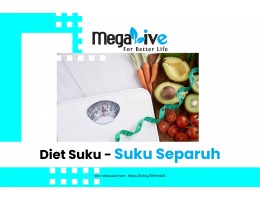
Diet Suku – Suku Separuh ?
Diet suku – suku separuh adalah saranan diet oleh Kementerian Kesihatan Malaysia (KKM) untuk cara pemakanan sihat. Pelbagai langkah dan inisiatif telah dilakukan bagi mempromosikan amalan pemakanan sihat kepada rakyat Malaysia.
MegaLive menyambut baik saranan ini dengan turut sama mempromosikan amalan pemakanan sihat kepada semua.
Suku – suku separuh adalah diet yang merangkumi suku jumlah karbohidrat seperti nasi, mee, bihun, capati, roti dll, suku jumlah protein seperti ayam, ikan, sotong dll dan separuh jumlah sayur – sayuran dan buah – buahan. Pinggan yang dirujuk dalam saranan diet ini adalah pinggan berukuran 10 inci/ 25sm.
Contoh hidangan suku – suku separuh:
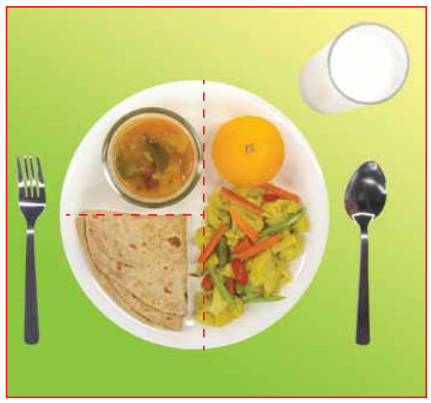
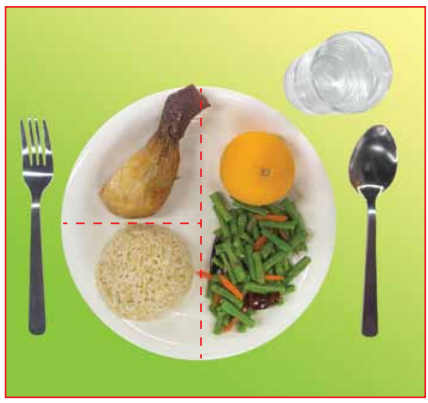
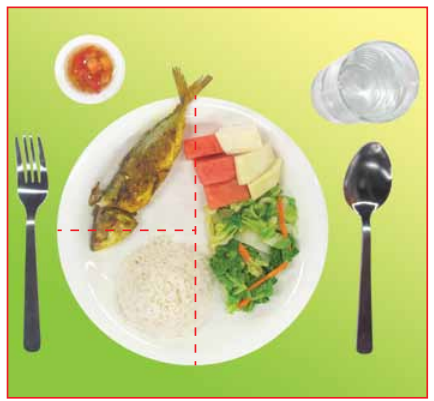
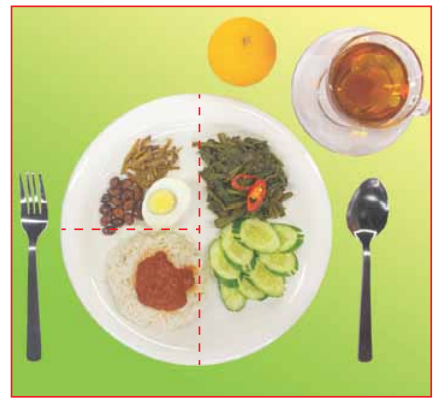
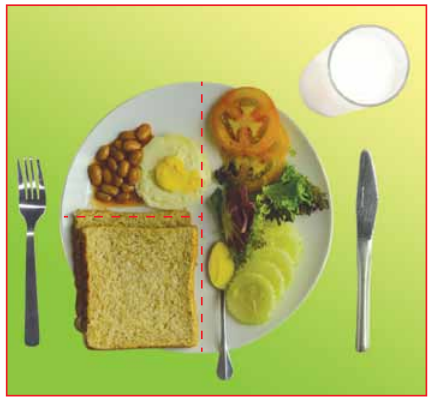
Terdapat 5 mesej utama dalam amalan diet suku – suku separuh.
Mesej Utama 1: Makan 3 Hidangan Utama yang sihat dalam sehari.
Ambil sarapan, makan tengah hari, dan makan malam secara sihat dengan mengikuti konsep suku – suku separuh.
Makan pada waktu yang tetap juga membantu pengawalan porsi/ saiz hidangan makanan. Berikut adalah contoh waktu makan harian.
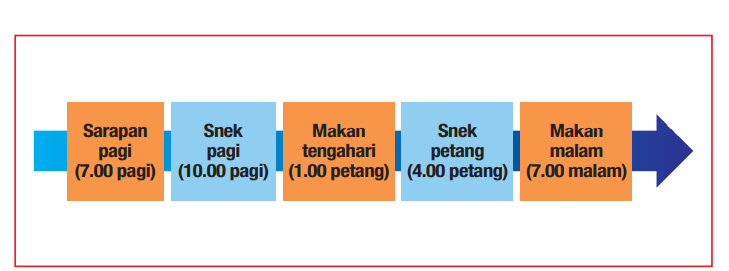
Mesej Utama 2: Makan 1-2 Snek yang Sihat di antara Waktu Makan Jika Perlu
Bagi menggalakan amalan pemakanan secara sihat secara holistik atau sebagai gaya hidup, anda juga digalakkan untuk mengambil snek sihat 1-2 kali/ hari dari sumber buah – buahan, kekacang, dan sayur – sayuran.
Contoh snek sihat yang boleh di ambil 1-2 sajian ialah:
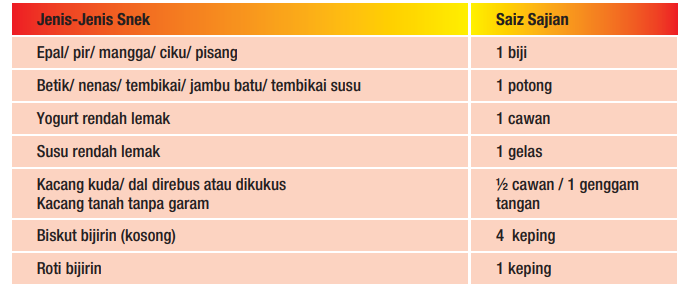
Mesej Utama 3: Makan Sekurang-kurangnya Separuh Daripada Bijirin Anda Sebagai Bijirin Penuh
Malaysia adalah negara di mana, makanan rujinya adalah nasi, oleh itu tidak hairanlah jika kebanyakkan rakyat Malaysia masih berasa tidak kenyang selagi tidak makan nasi. Oleh yang demikian, Kementerian Kesihatan Malaysia (KKM) menggariskan pengambilan karbohidrat hendaklah diambil kebanyakkannya dari sumber bijirin penuh, seperti dari sumber nasi beras perang, roti bijirin mil penuh, jagung, barli dll.
Contoh makanan berkarbohidrat yang tinggi serat:
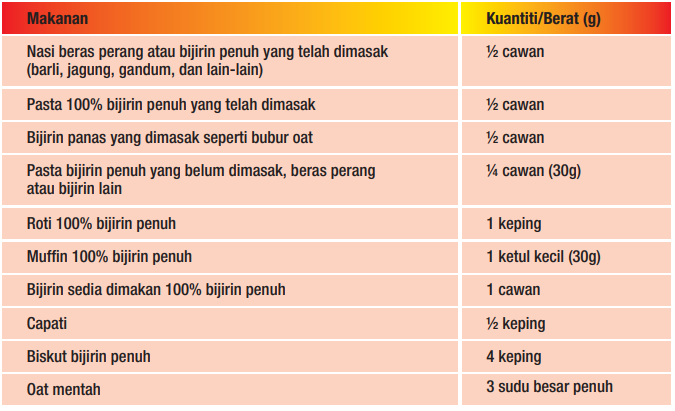
Mesej Utama 4: Makan Hidangan Tidak Bergoreng dan Tanpa Santan Setiap Hari
Seterusnya, lauk -pauk di Malaysia begitu sinonim sekali dengan jenis lauk -pauk yang digoreng menggunakan minyak yang sangat banyak iaitu menggunakan kaedah ‘deep -frying’. Makanan bergoreng dengan minyak banyak yang digunakan secara berulang – ulang dan makanan yang mengandungi jumlah santan yang tinggi boleh meningkatkan masalah kesihatan seperti masalah jantung, darah tinggi, kolesterol dan kanser.
Justeru, pengambilan makanan dengan cara masakan dengan kandungan santan yang tinggi seperti masak lemak, kari, gulai, dan masakkan bergoreng hendaklah dihadkan.
Cara mengantikan pengambilan minyak dan santan dalam masakan dan makanan:

Mesej Utama 5: Makan Makanan yang dimasak di Rumah Lebih Kerap
Makanan yang dibeli di luar secara amnya mempunyai kandungan gula, garam, sos, kicap, perasa, dan monosodium glutamate (MSG) yang tinggi, ia juga kebanyakannya menggunakan kaedah memasak yang kurang sihat iaitu dengan cara menggoreng dengan minyak yang banyak dan berulang- ulang.
Kandungan makanan yang tinggi garam, gula, sos, kicap, perasa dan MSG boleh menyebabkan tinggi risiko kepada masalah kesihatan seperti diabetes, dan juga darah tinggi.
Selain daripada itu, pengambilan makanan dari luar juga seringkali mempunyai saiz hidangan yang tidak mengikut spesifikasi suku – suku separuh, hal ini menyebabkan individu lebih cenderung untuk makan secara berlebihan dan mendapat lebih risiko untuk menjadi obes.
Cadangan hidangan harian di rumah:

Rujukan
- Kementerian Kesihatan Malaysia (KKM). Bahagian Pemakanan. Panduan Pinggan Sihat Malaysia. https://bit.ly/3HHHdU6
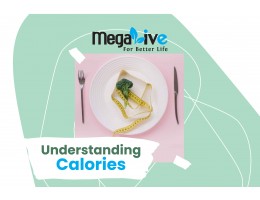
Understanding calories
Calories are a unit of measurement for the amount of energy in food and beverages.
We put energy into our bodies when we eat and drink. This energy will then be used in our daily activities, such as breathing, sleeping, and running.
To maintain a stable weight, we must balance the energy we put into our bodies with the energy we use through normal body functions and daily activities. Simply put, the more calories you put into your body, the more activities you need to do to burn them off, and vice versa.
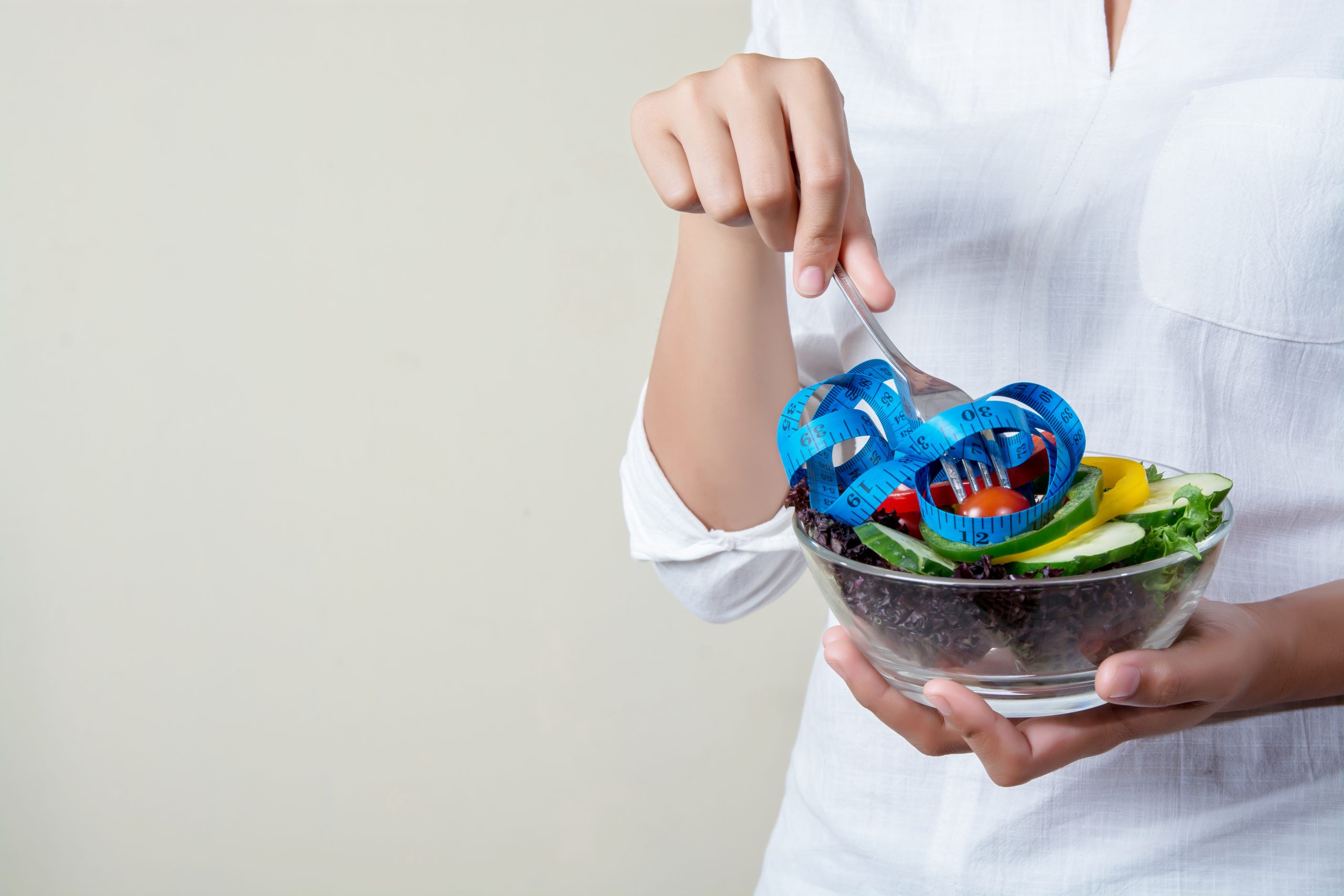
General calories intake
Men on average need about 2500 kcal per day, while women need about 2000 kcal per day. However, as mentioned above, the amount of recommended nutrient intake varies from person to person based on their daily activities, occupation, frequency of exercise, lifestyle habits, and also body metabolism.
The more vigorously you engage in an activity, the more calories you will expend. Fast walking, for example, burns more calories than moderate walking. If you're gaining weight, it could be because you've been eating and drinking more calories than you've been burning. To lose weight, you must expend more energy than you consume; this can be accomplished by eating less or exercising more vigorously. Doing this consistently over time will get you to your desired weight.
When people try to lose weight, they tend to restrict their food intake and often do not enjoy their diet changes. A healthy diet should also be a sustainable diet, which means gradually but consistently reducing unhealthy food consumption, consuming more healthier food options, and being mindful of the amount of food consumed.
Calorie counter
Nowadays, there are various apps that can be used on a mobile phone to track not only your calorie intake but also your steps, exercise, and the energy that you burn. Using all these apps and gadgets is helpful in making sure that you are on track with your diet and exercise.
One of the apps developed by the Ministry of Health Malaysia that is compatible with the Malaysian variety of foods is My Nutri Diary 2.0. The app is helpful in monitoring your calorie intake and your weight progress. Often, when we use calorie tracking apps, it frustrates users that the app does not know how many calories a nasi lemak has (or any local food), but with my nutri diary, it covers a variety of Malaysian food options, which can be helpful for our daily food consumption.
Gap between unhealthy diet and body needs
While trying to lose, put on, or maintain weight, imbalanced consumption of foods may lead to the loss of some essential nutrients. Hence, to bridge the gap between the lack of nutrients in food and what the body needs, consumption of multivitamins and multiminerals is helpful.
Other conditions include denture problems, loss of appetite, a hectic lifestyle, and many more.




